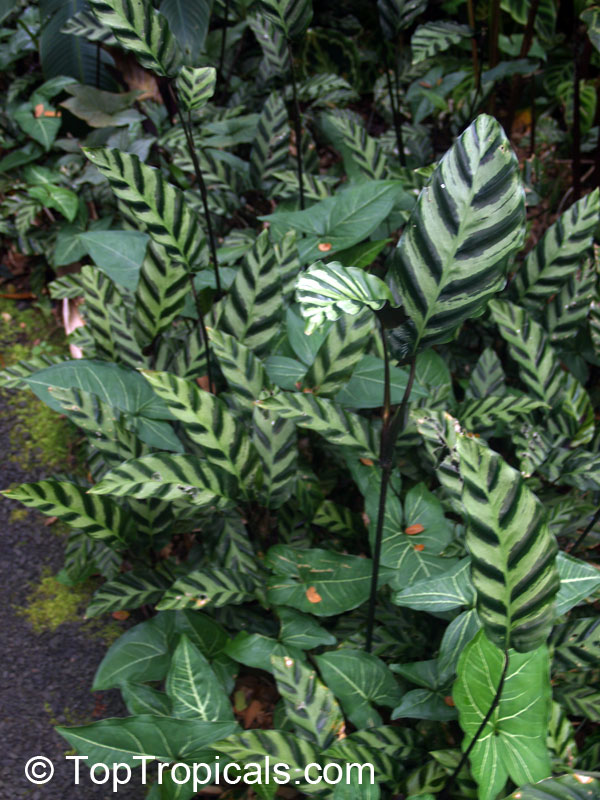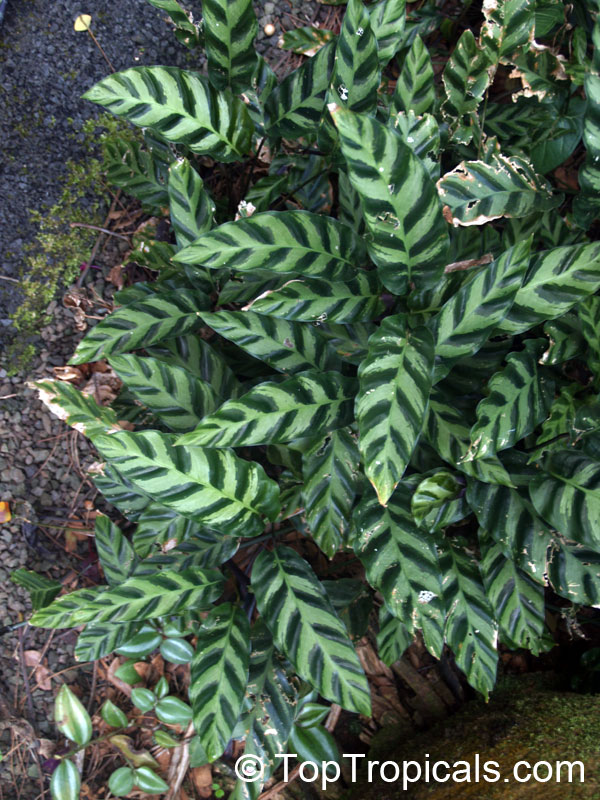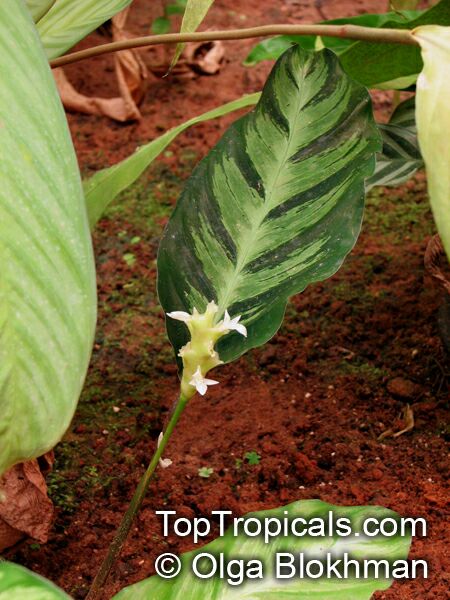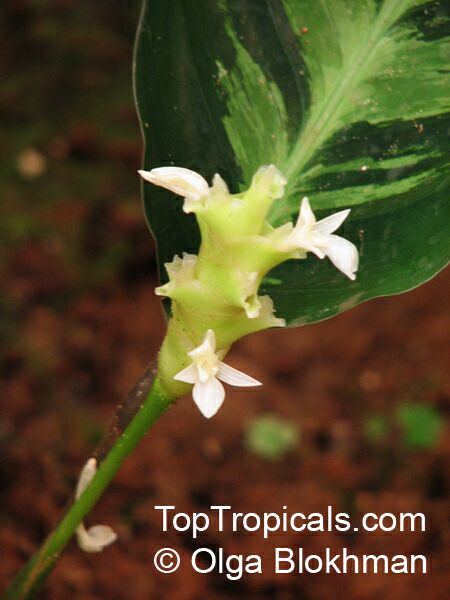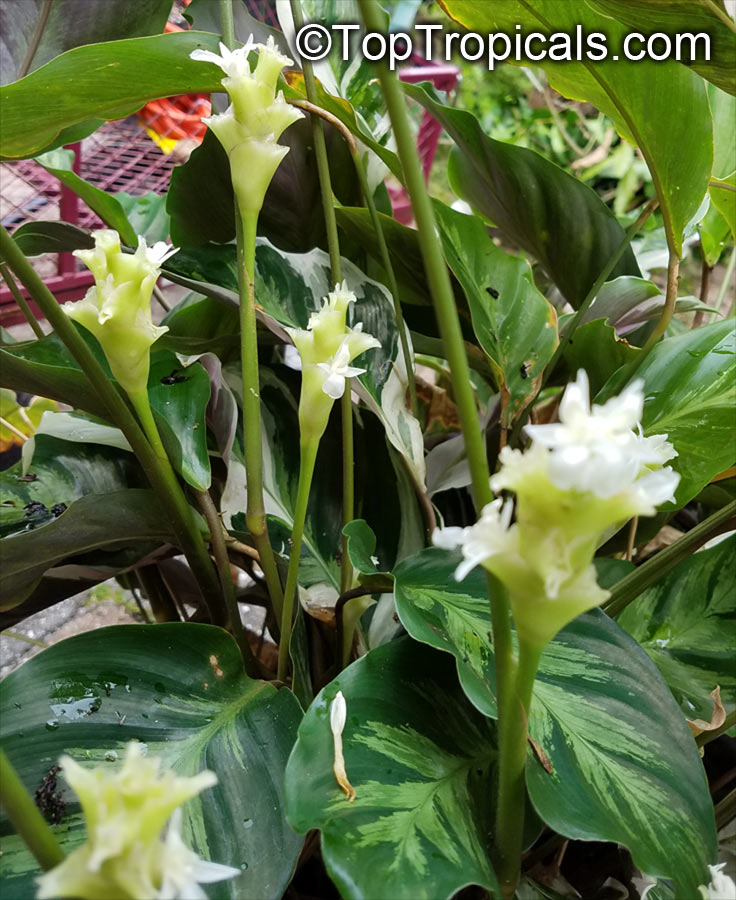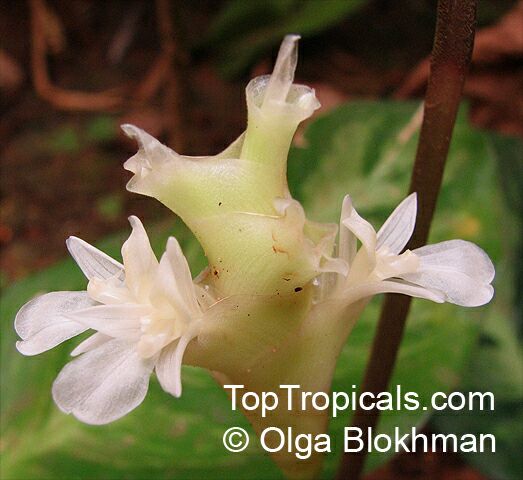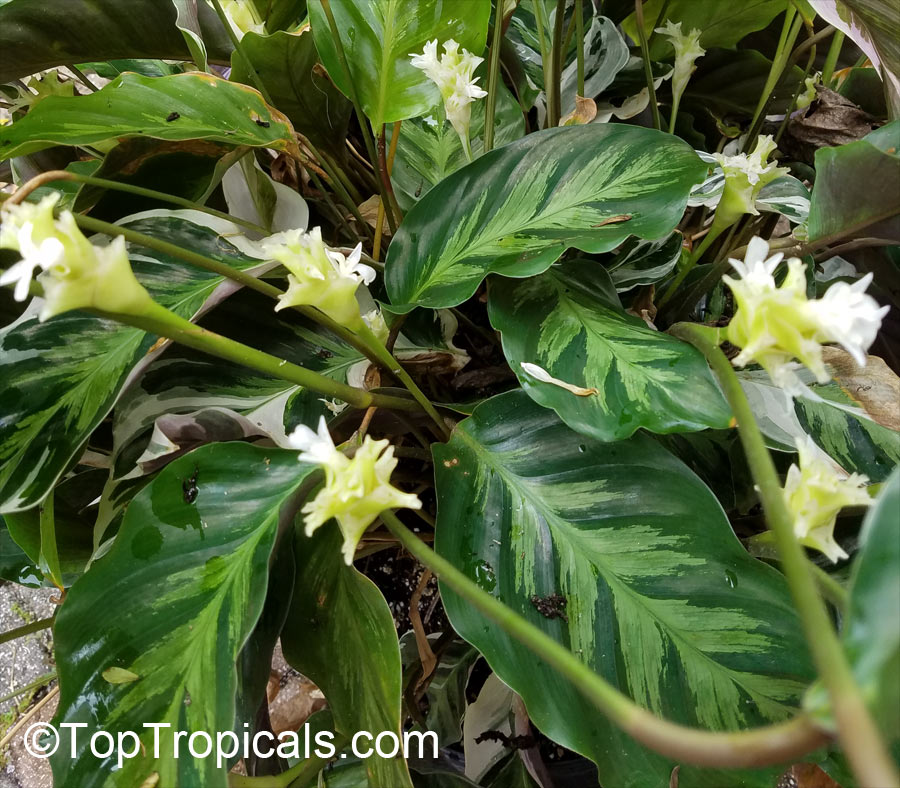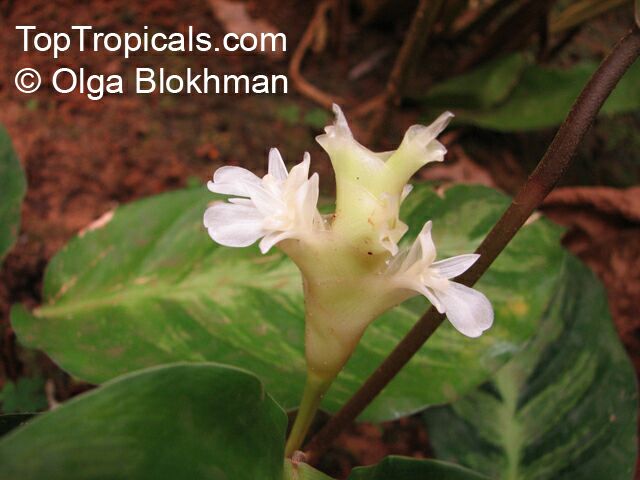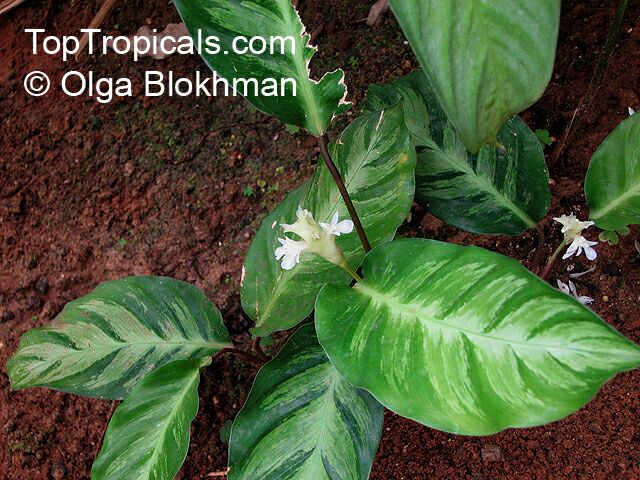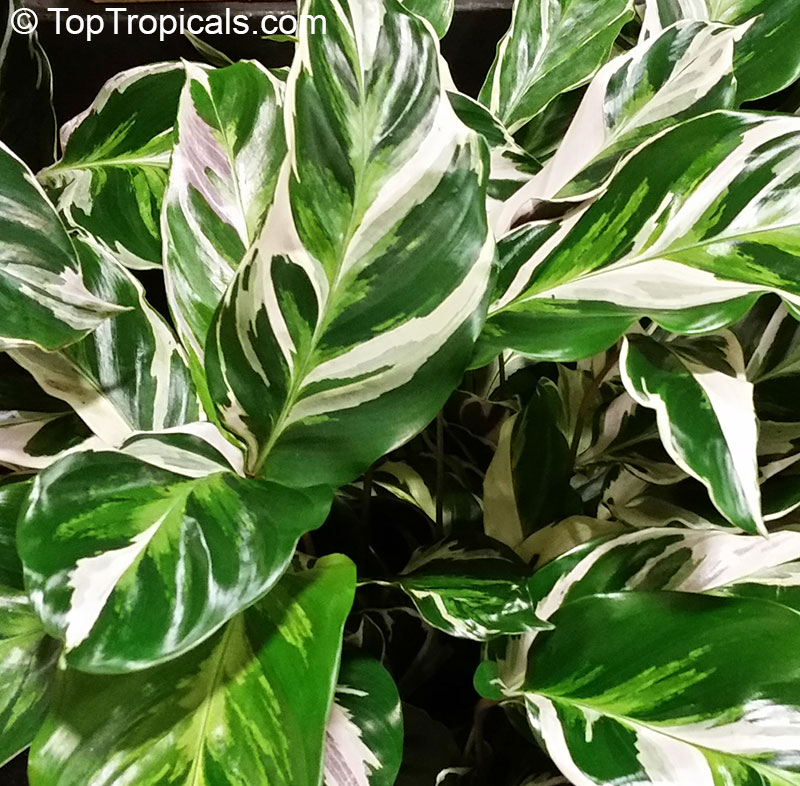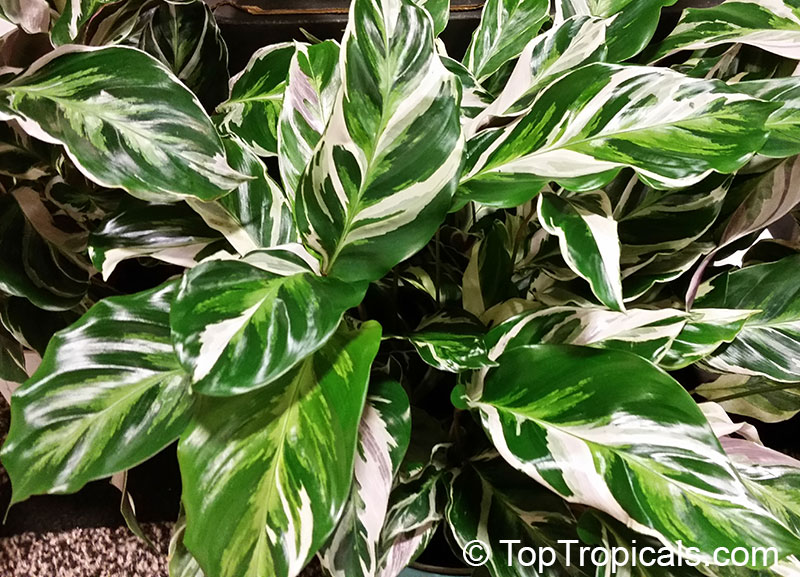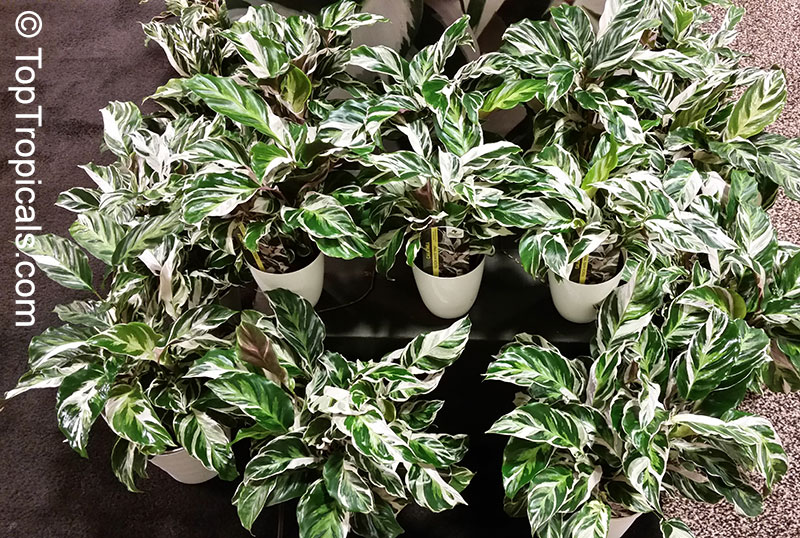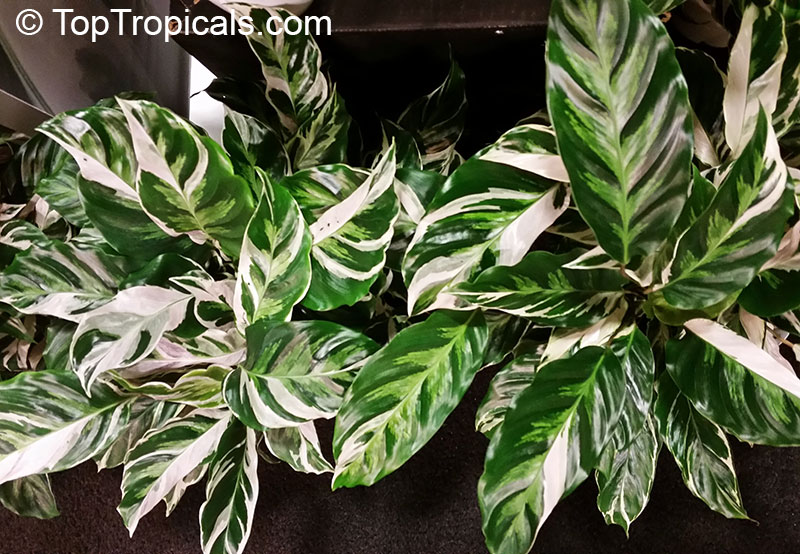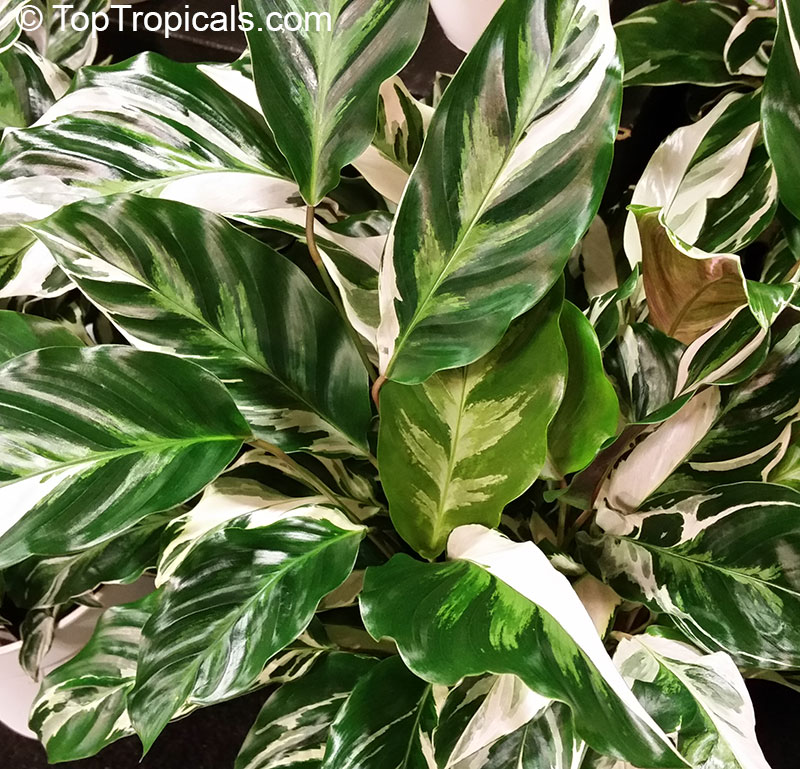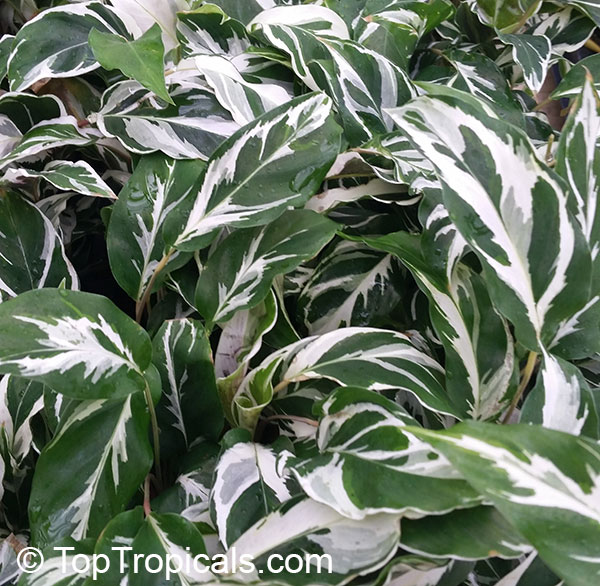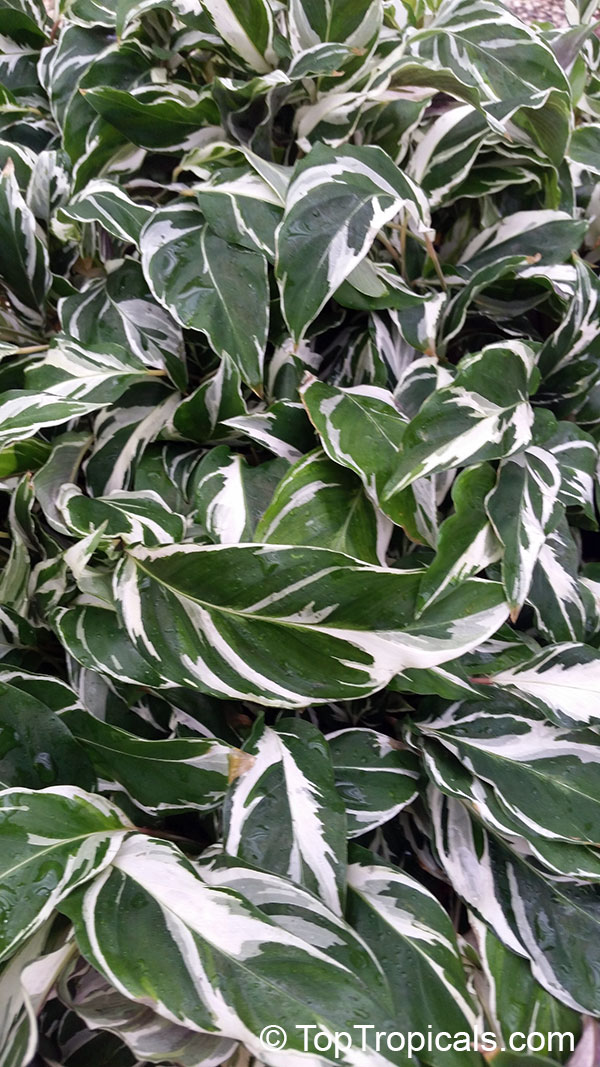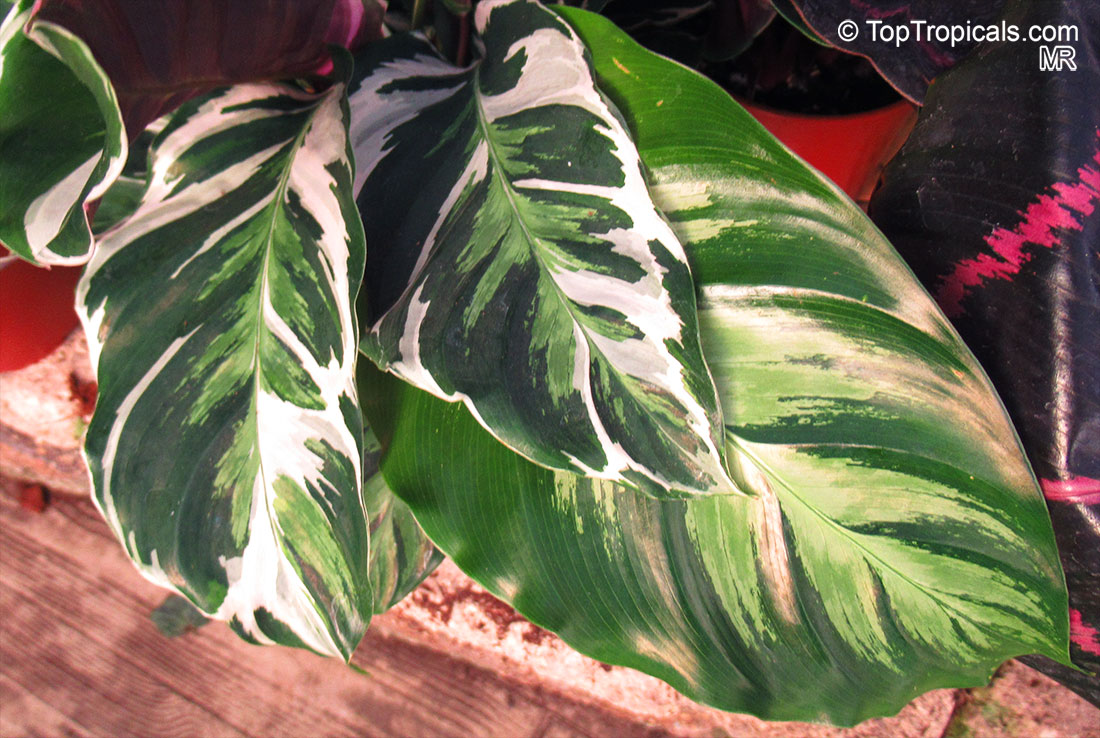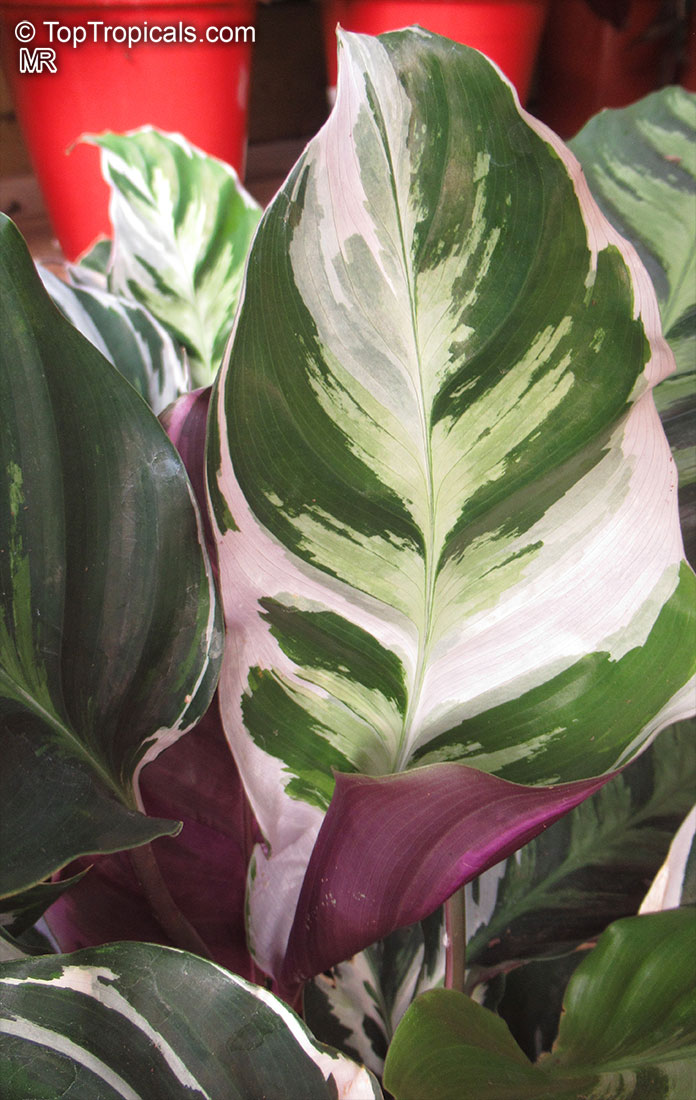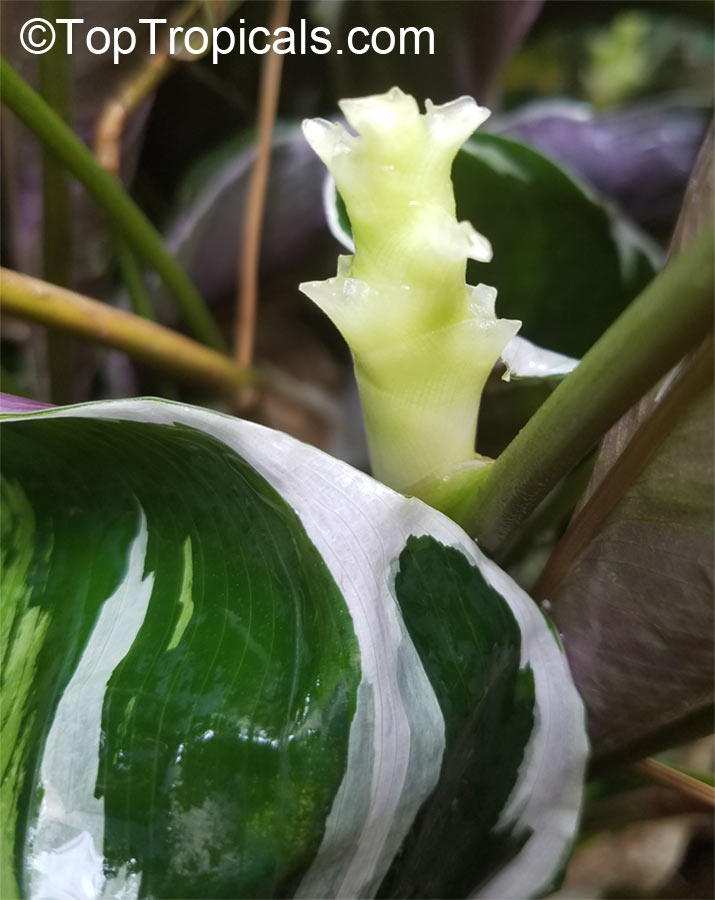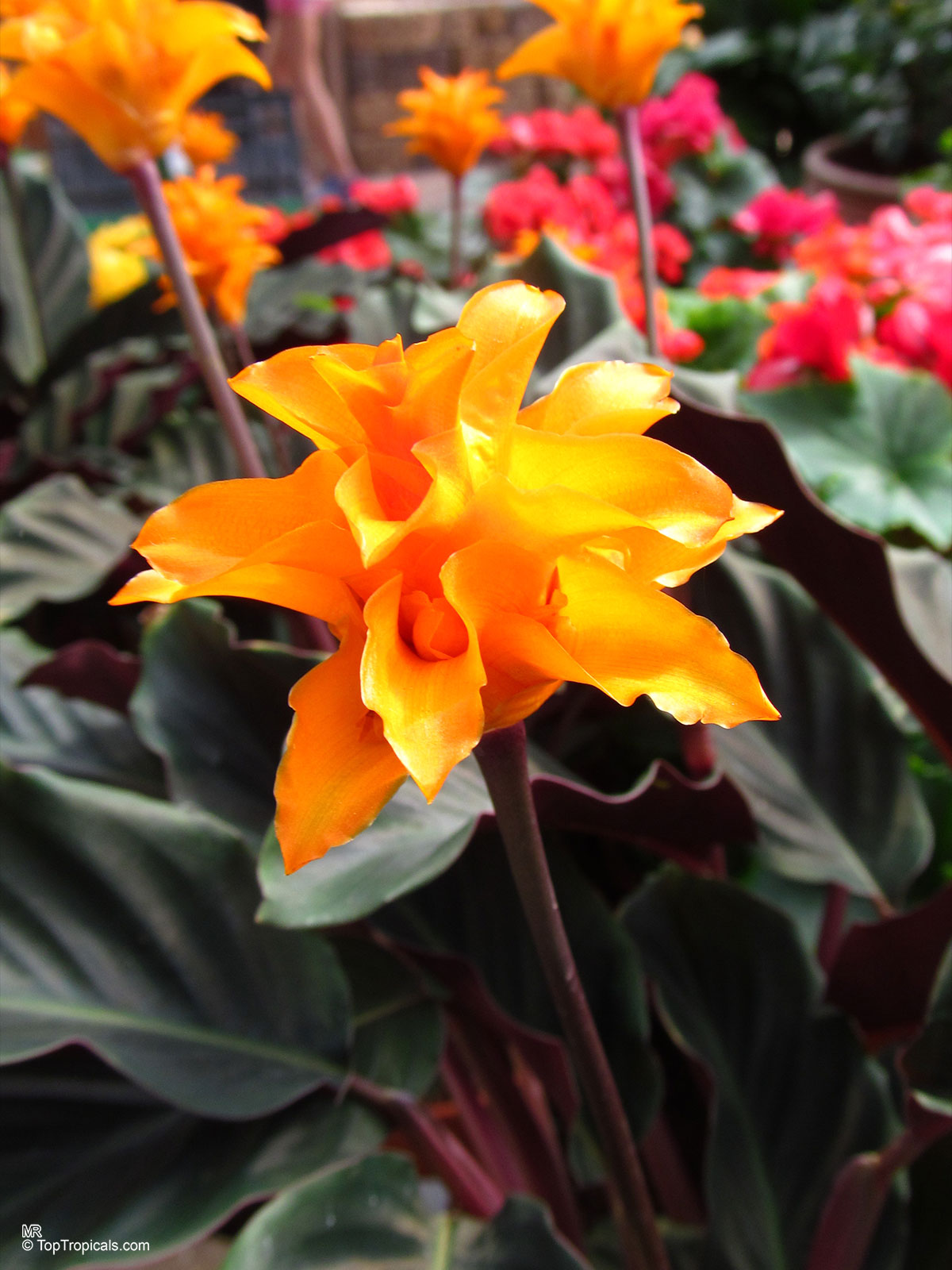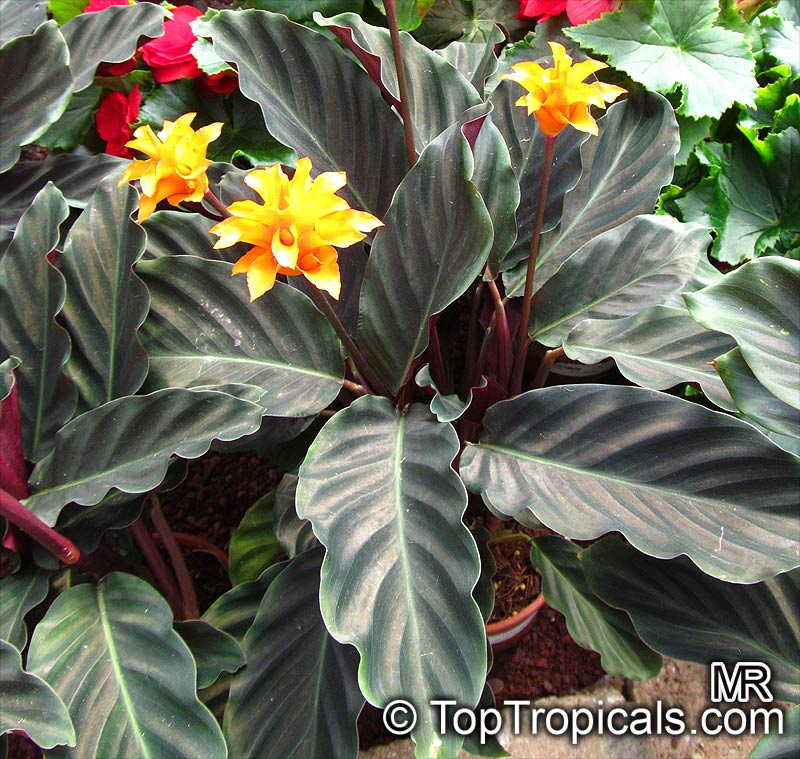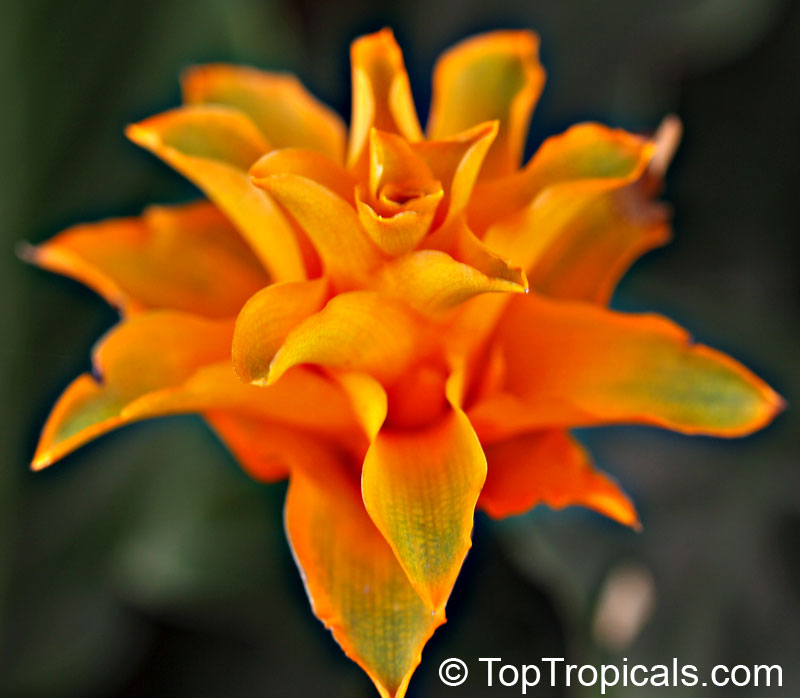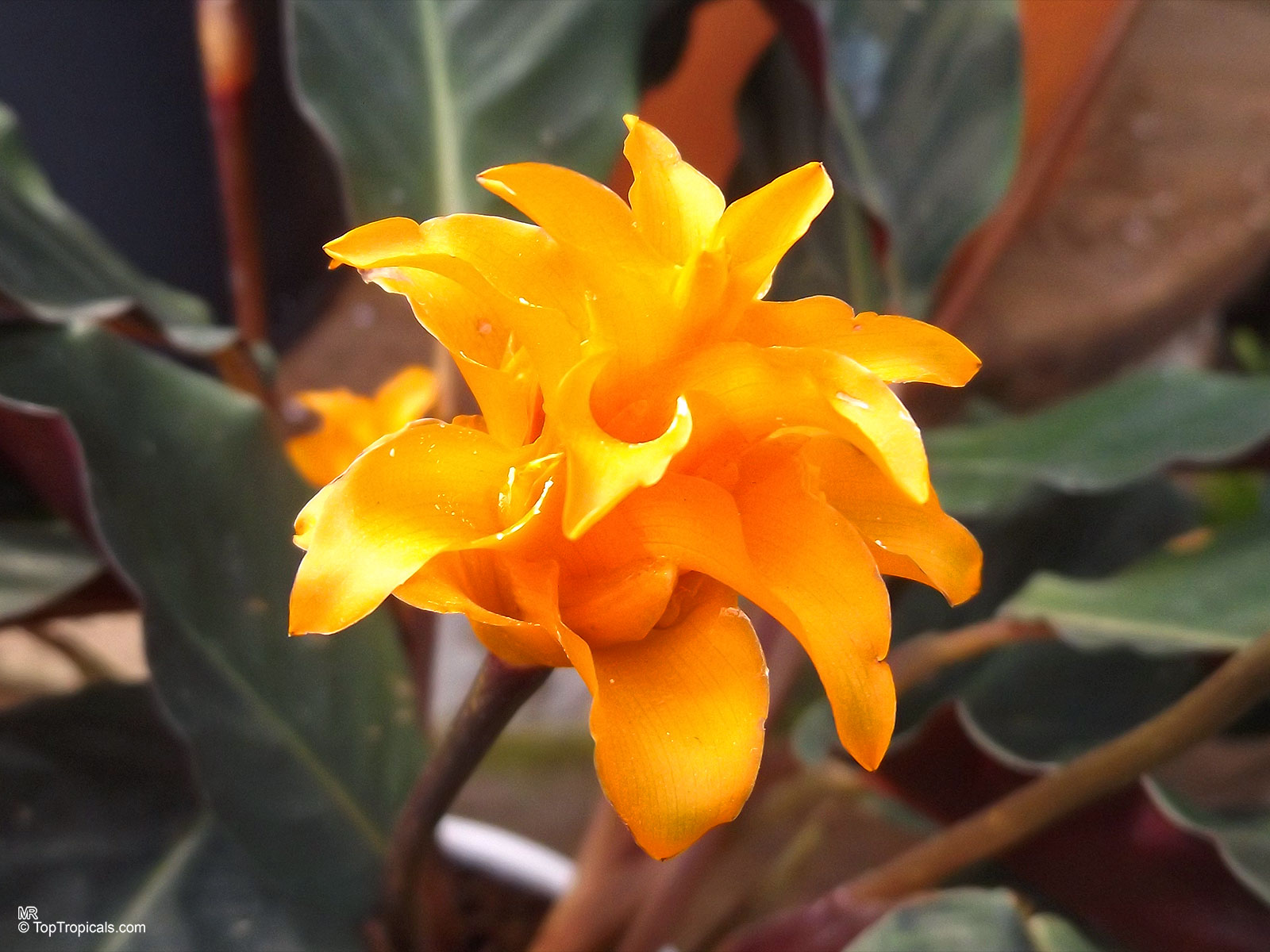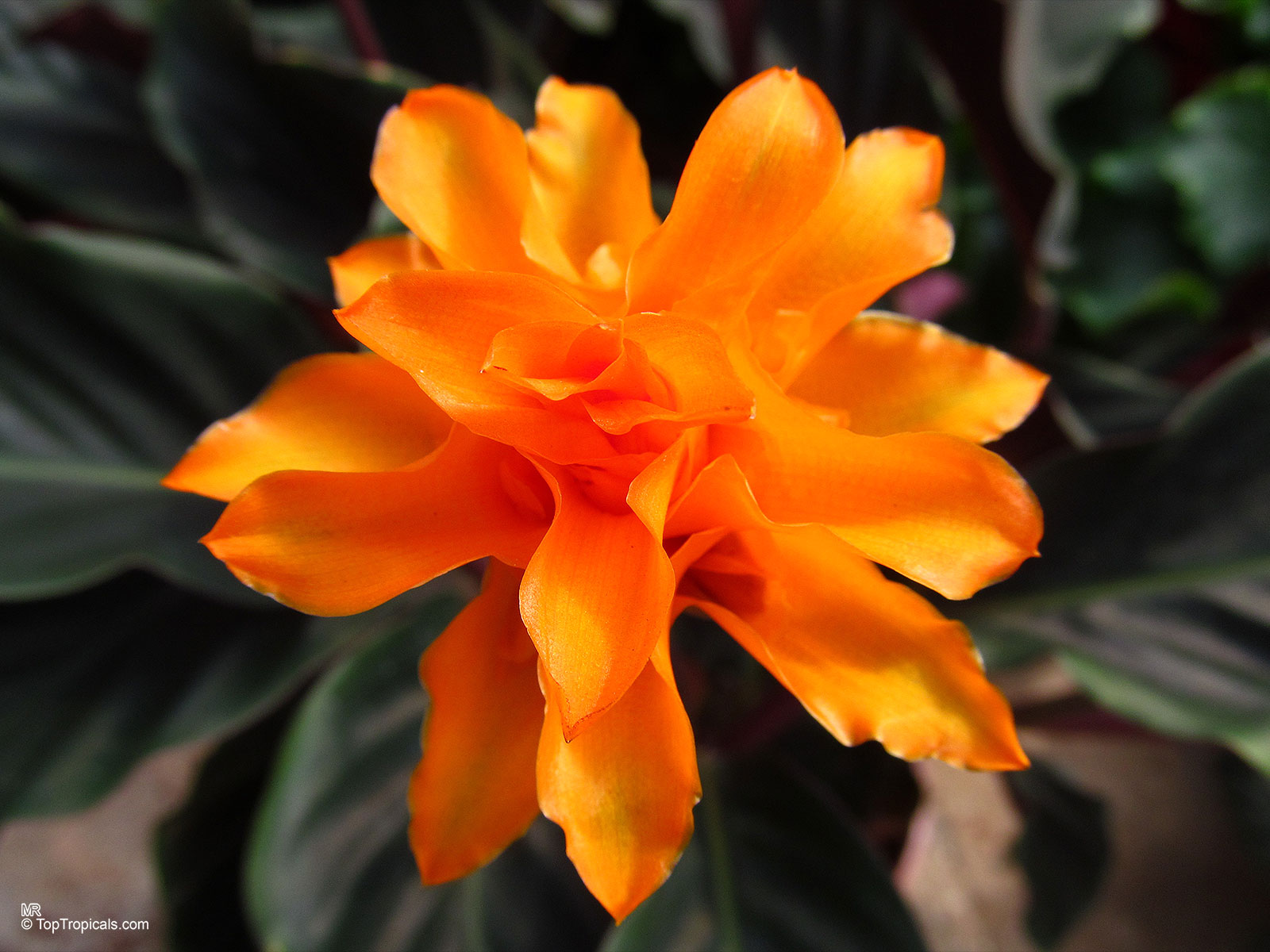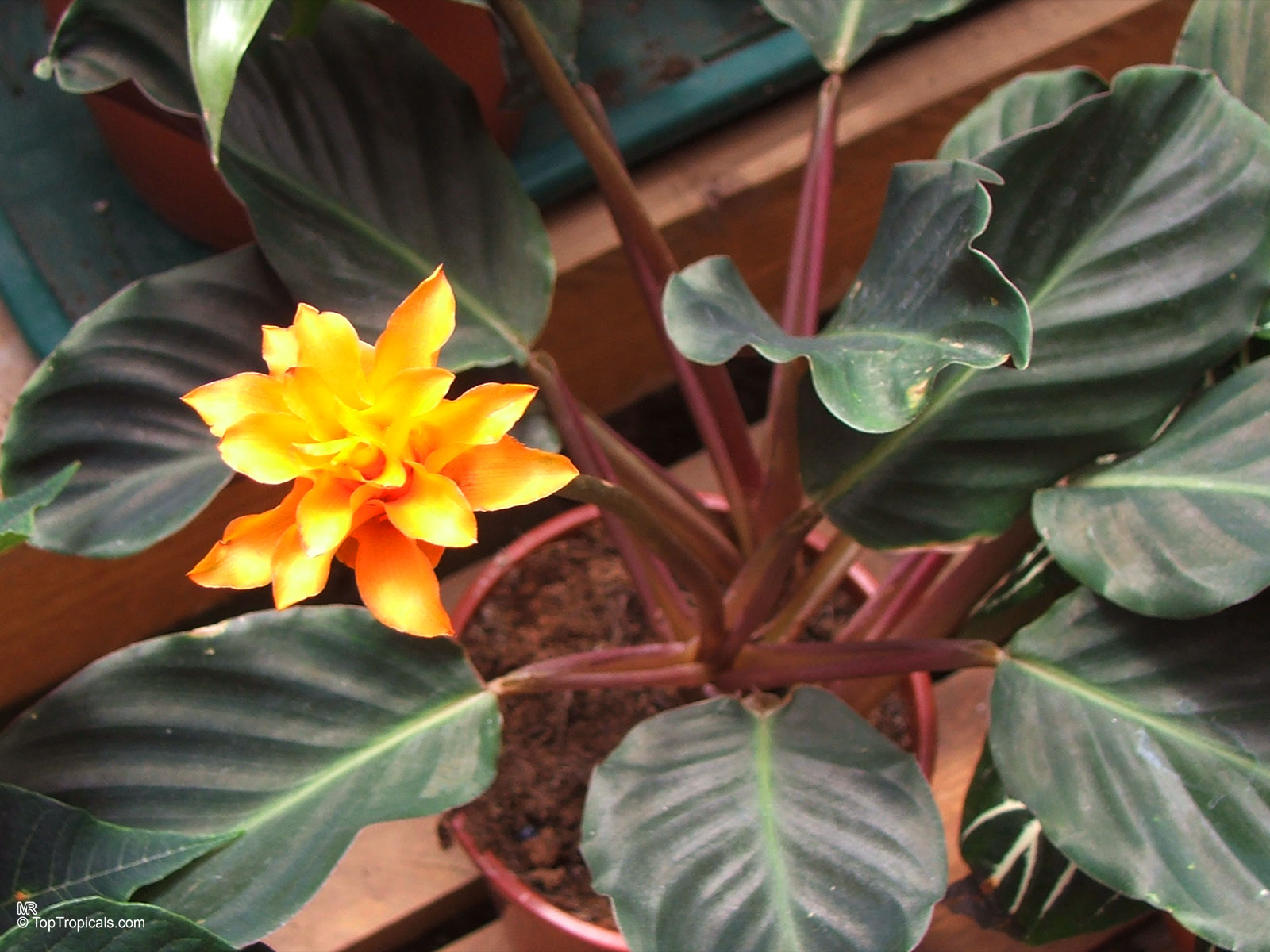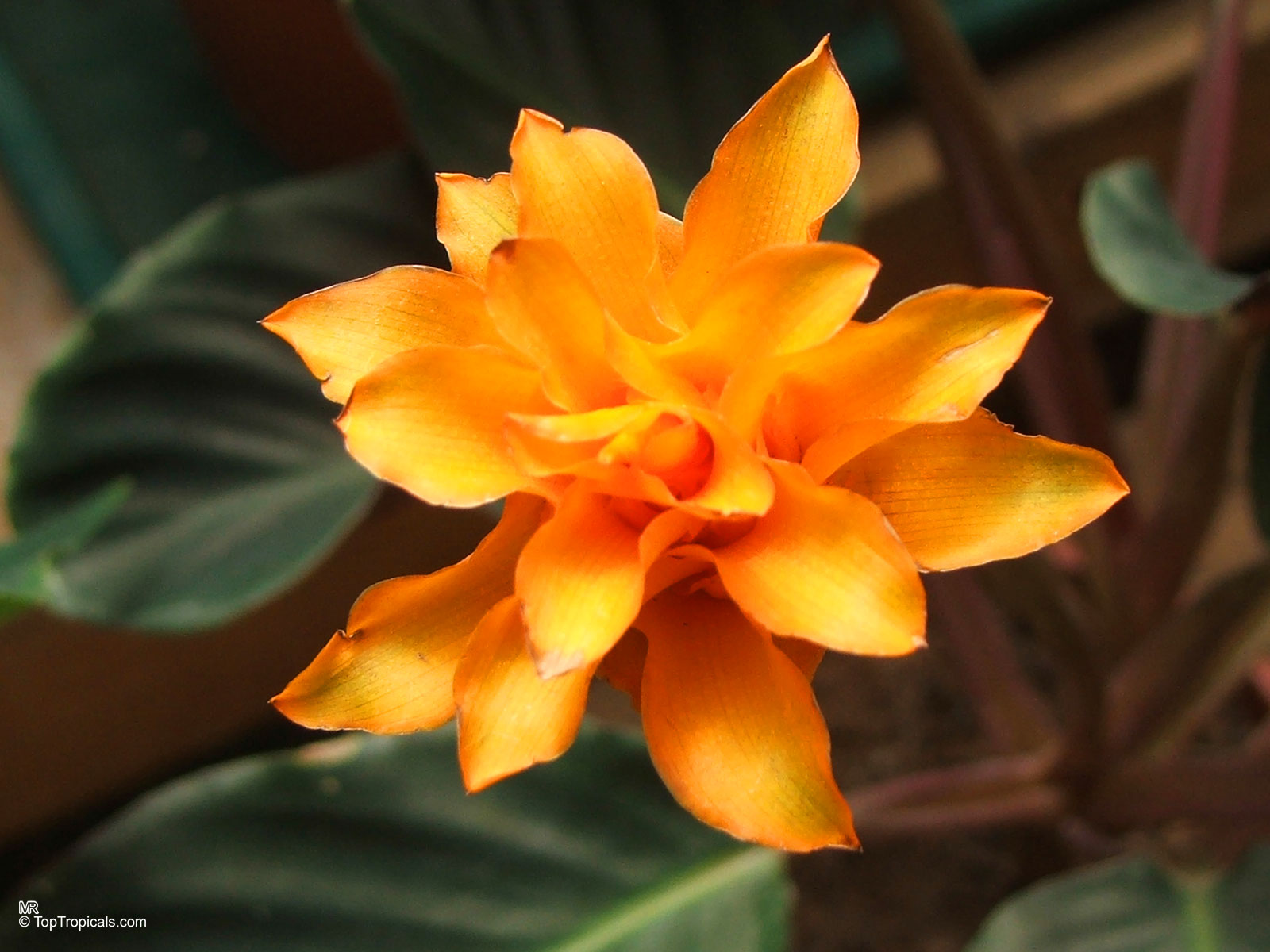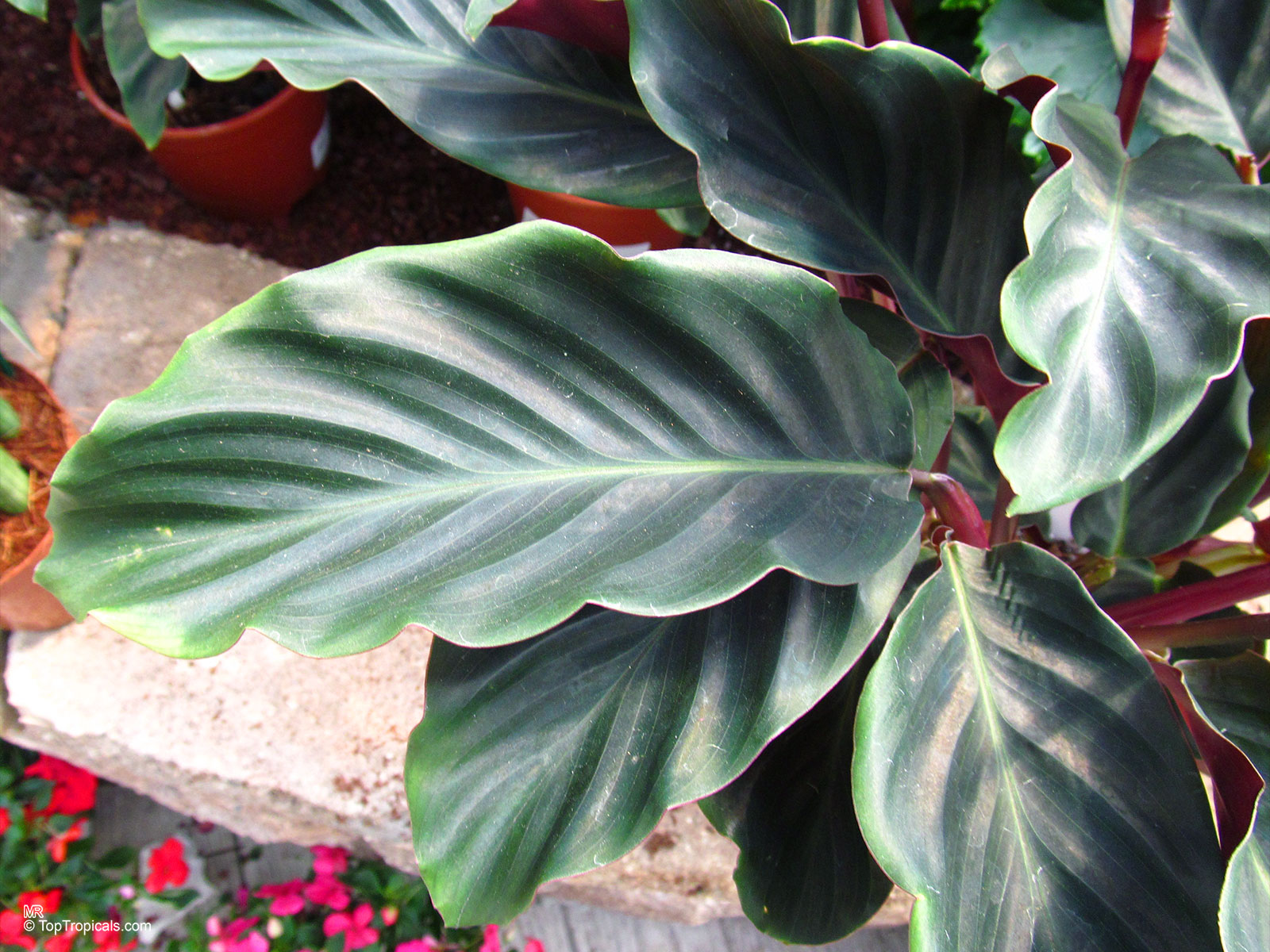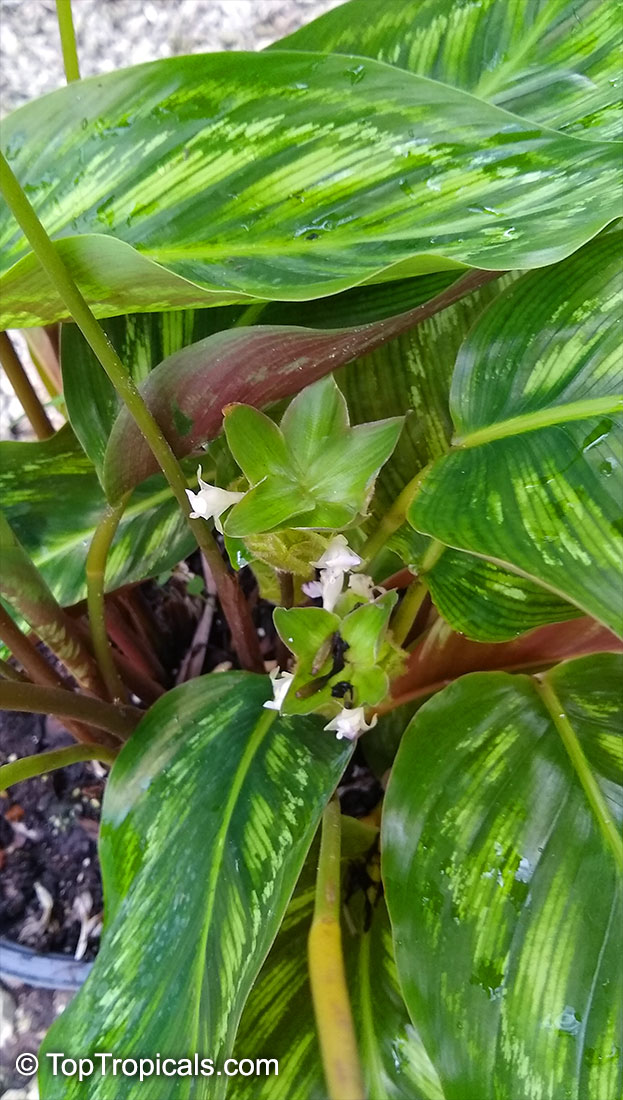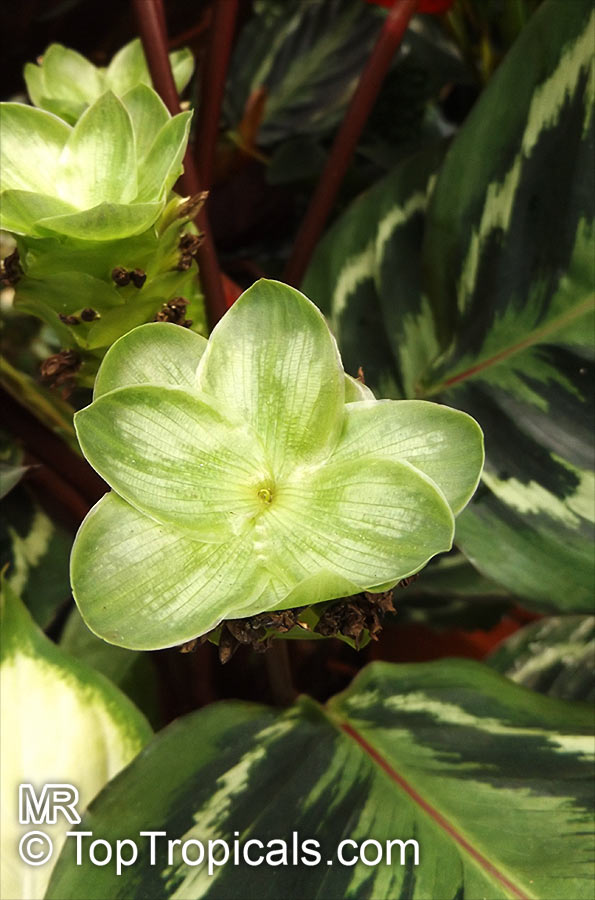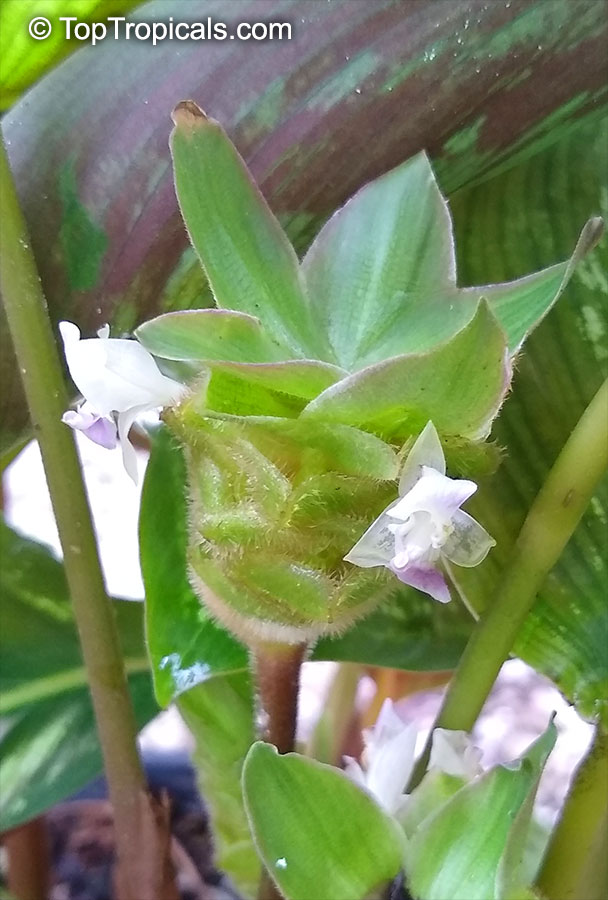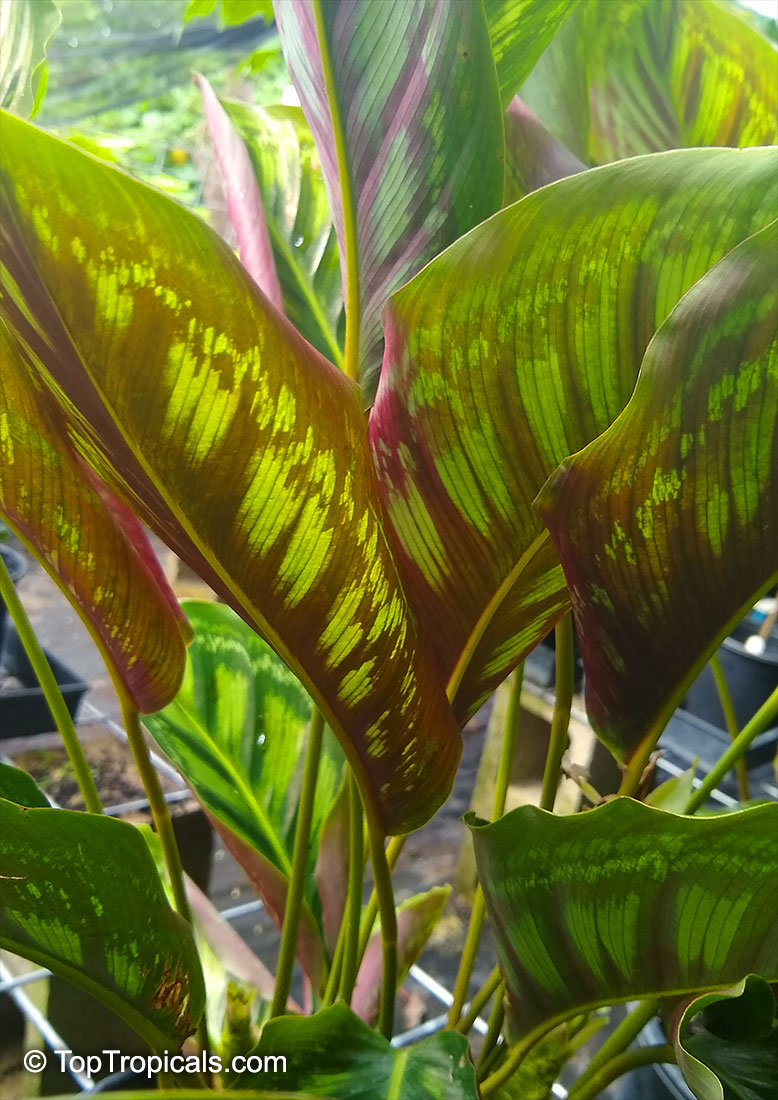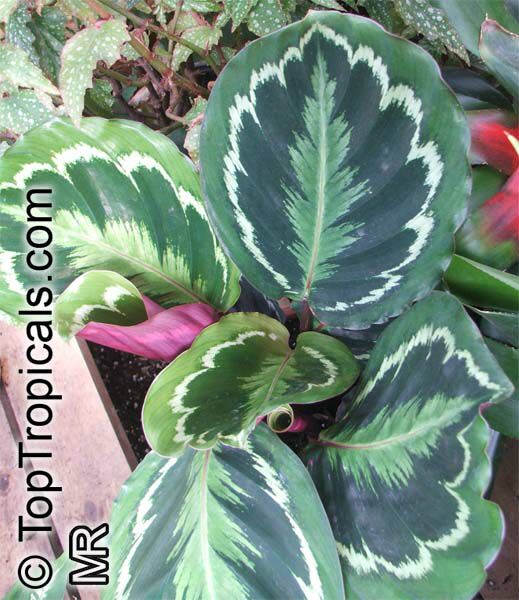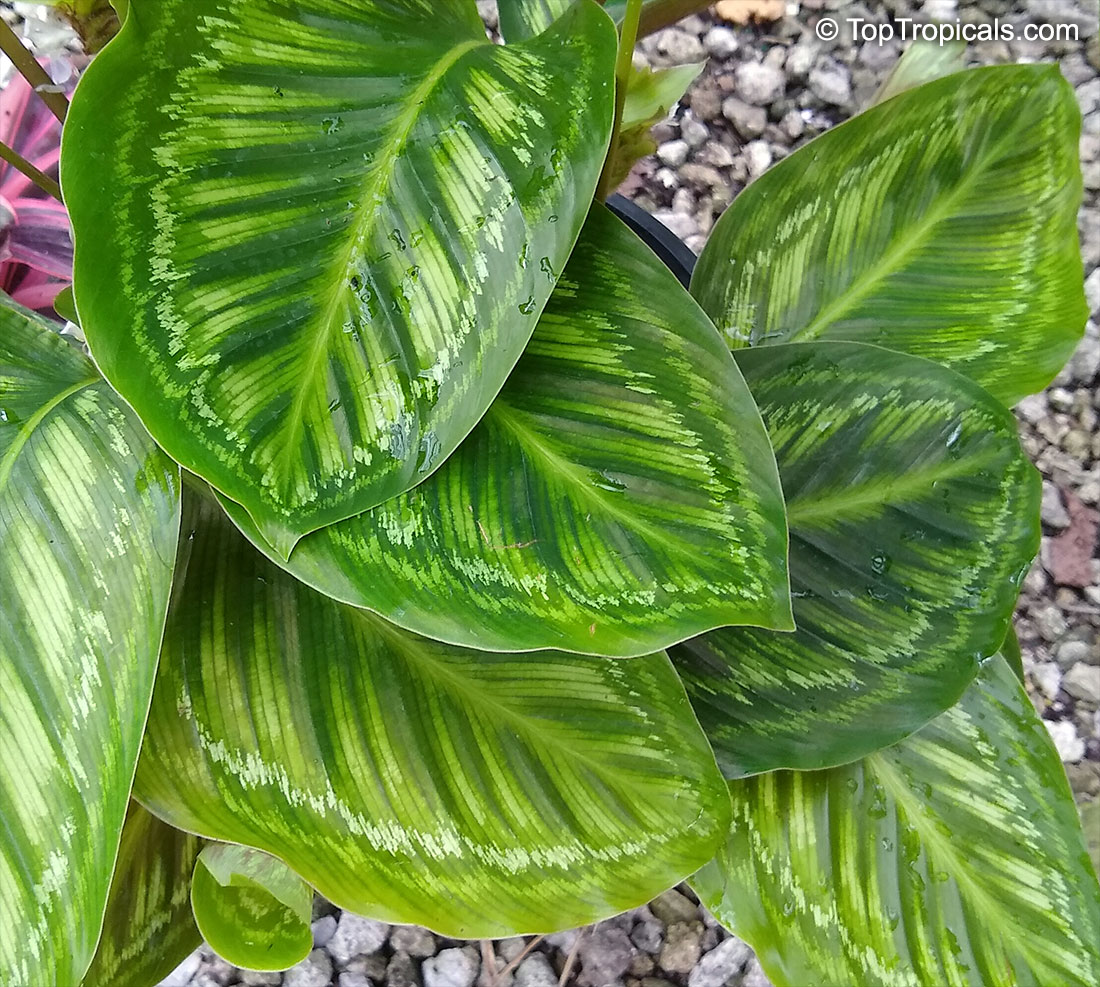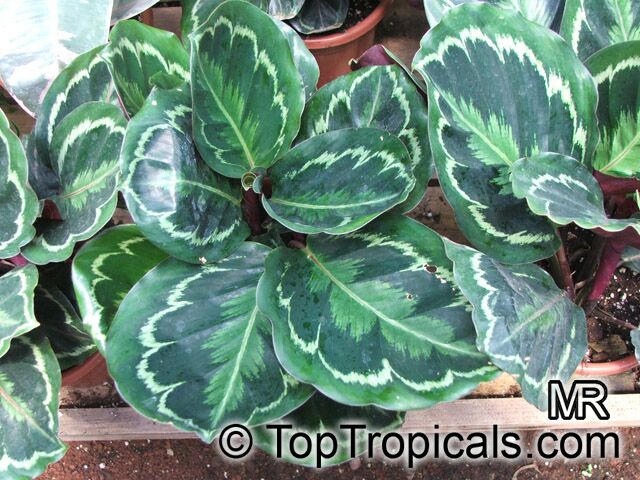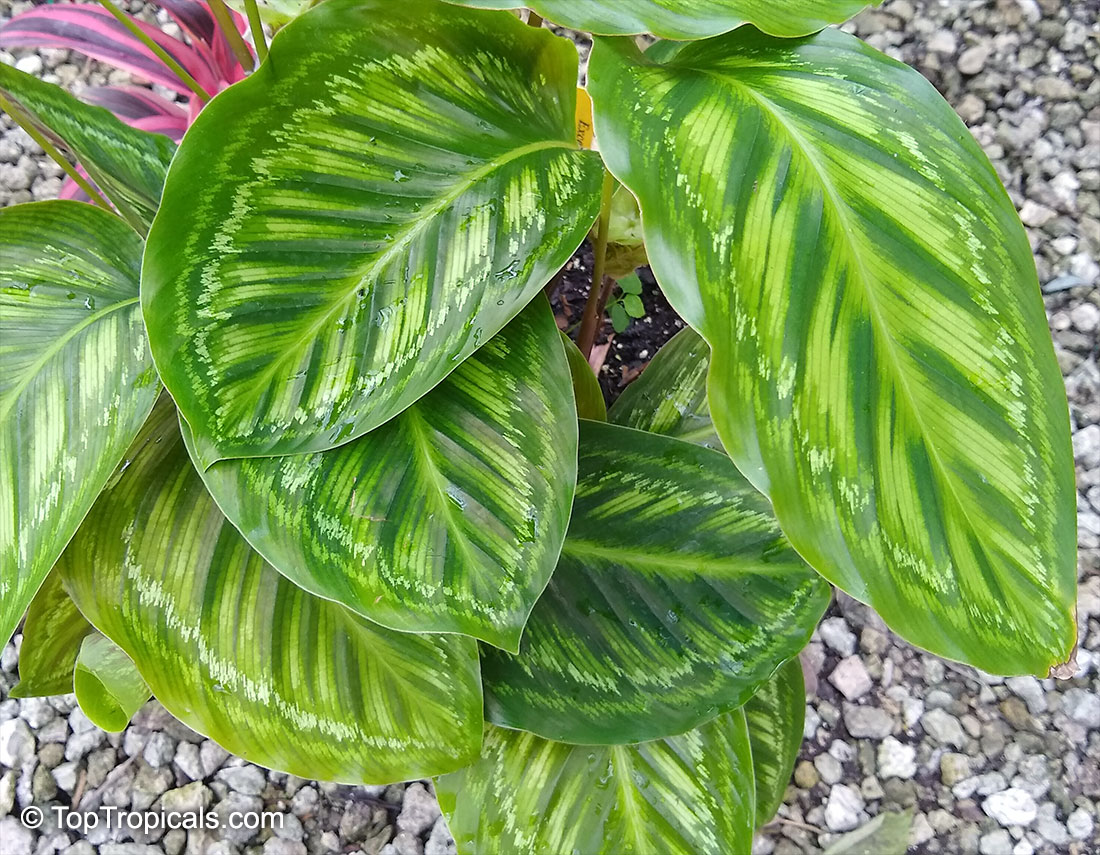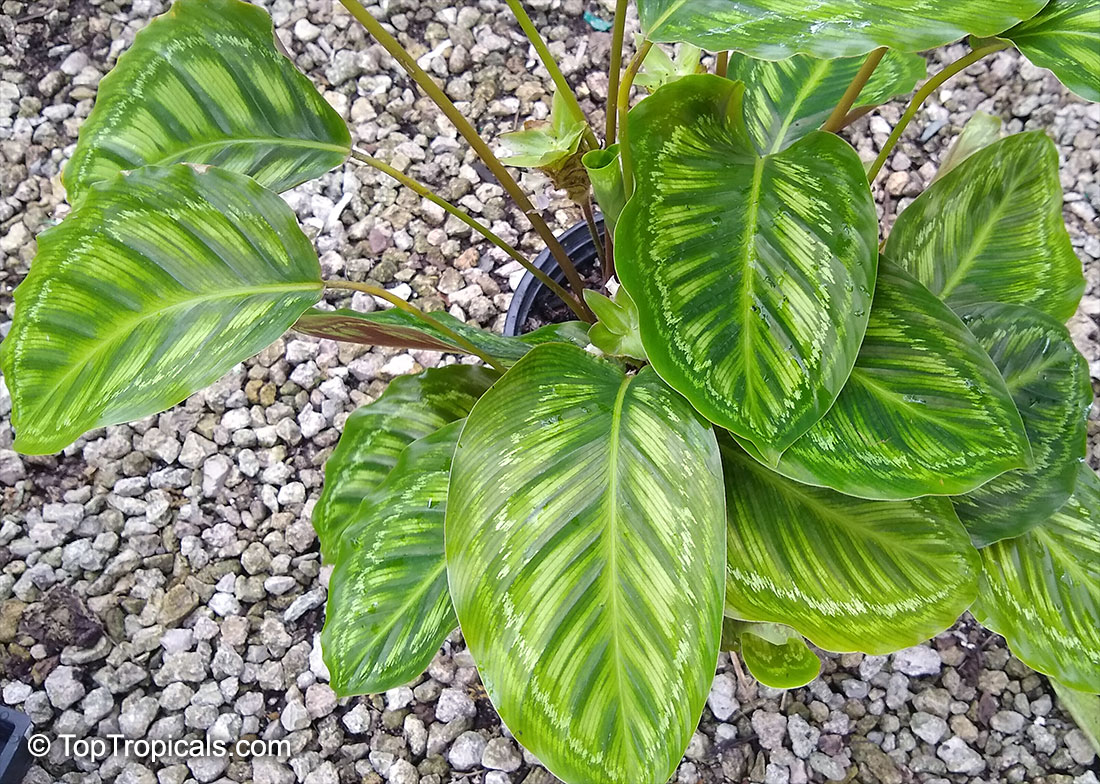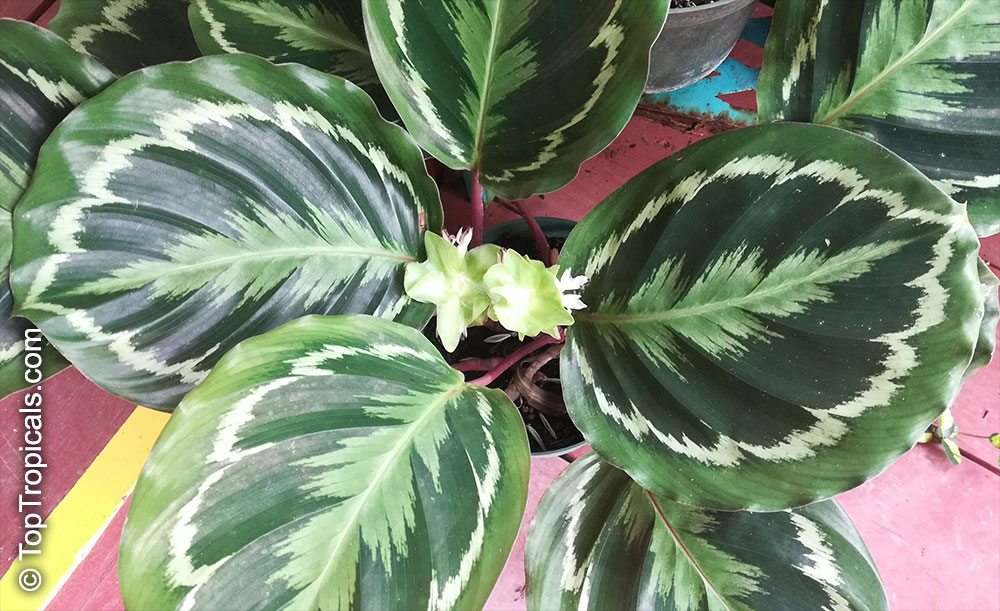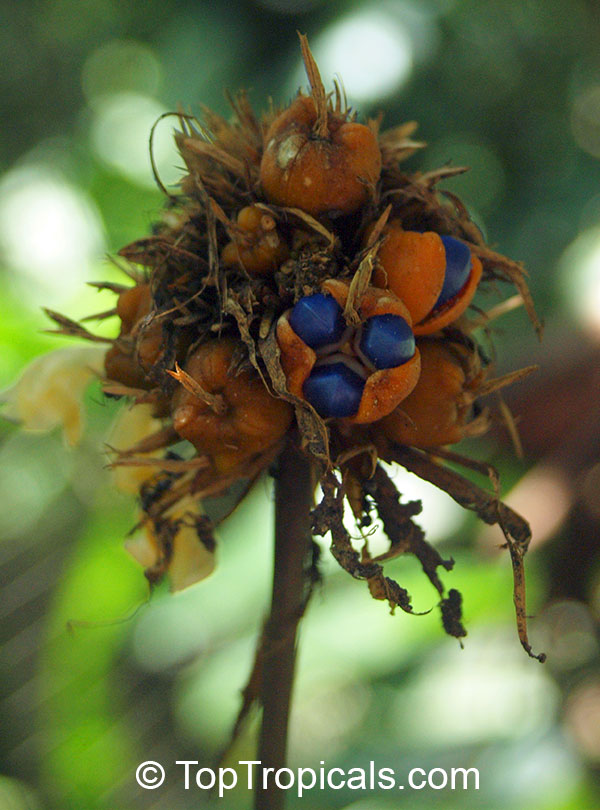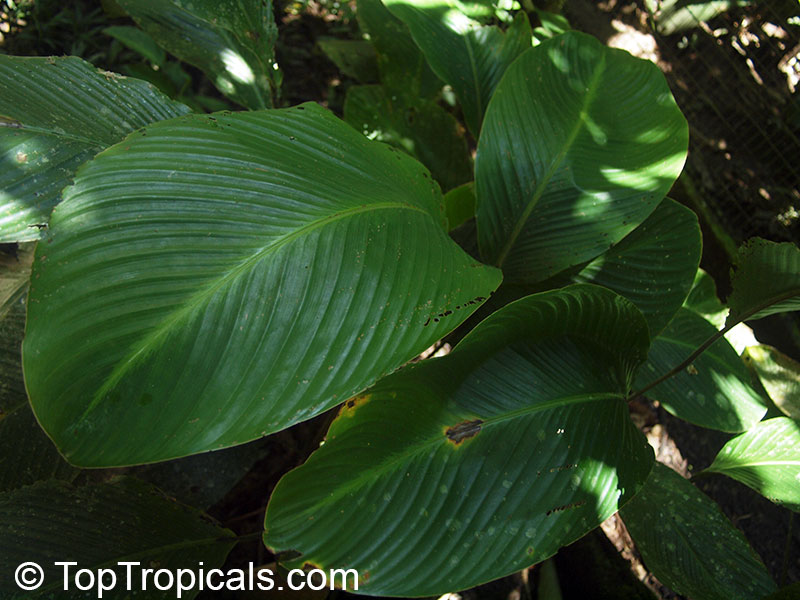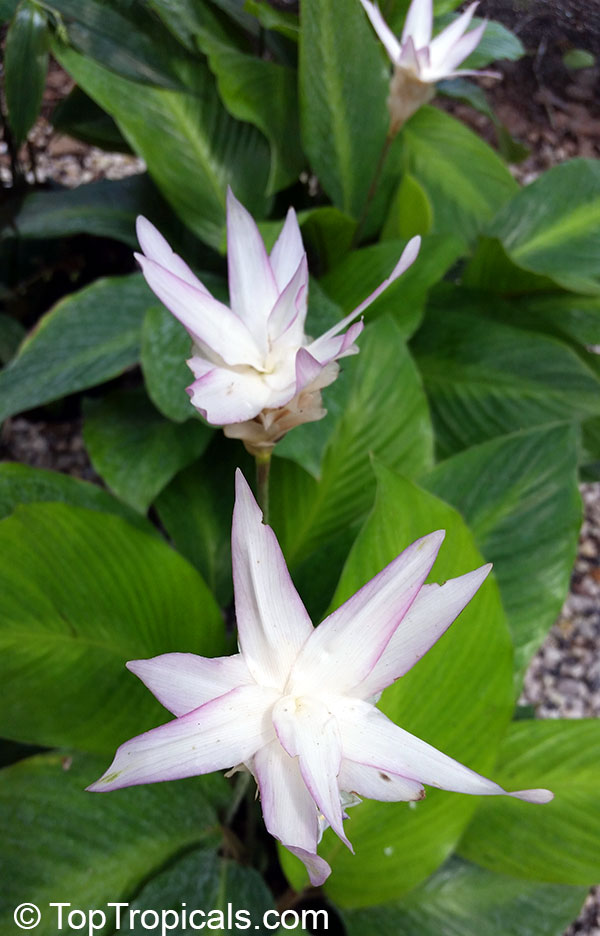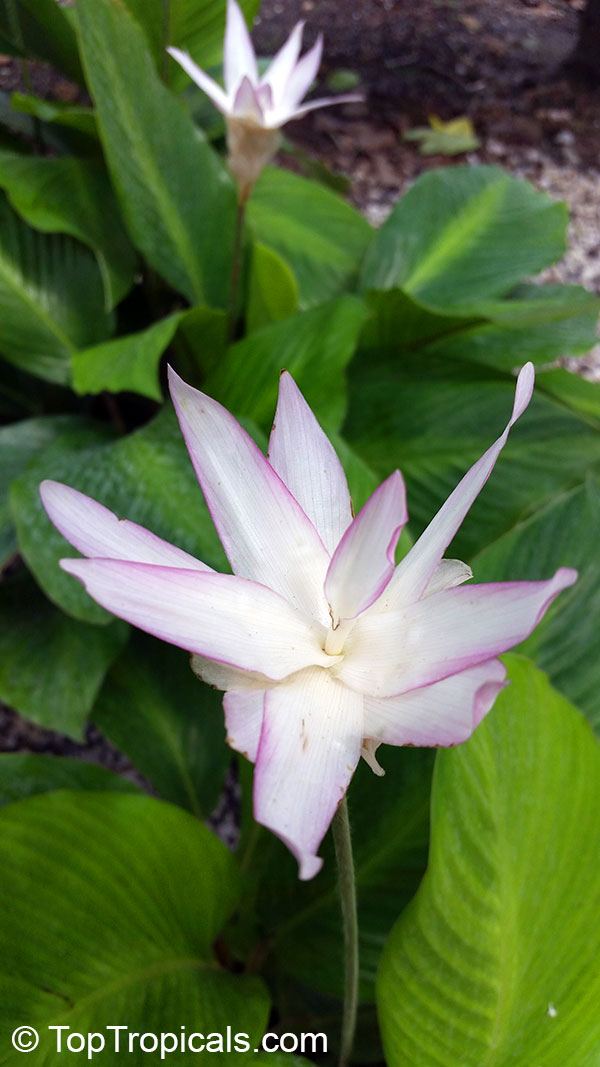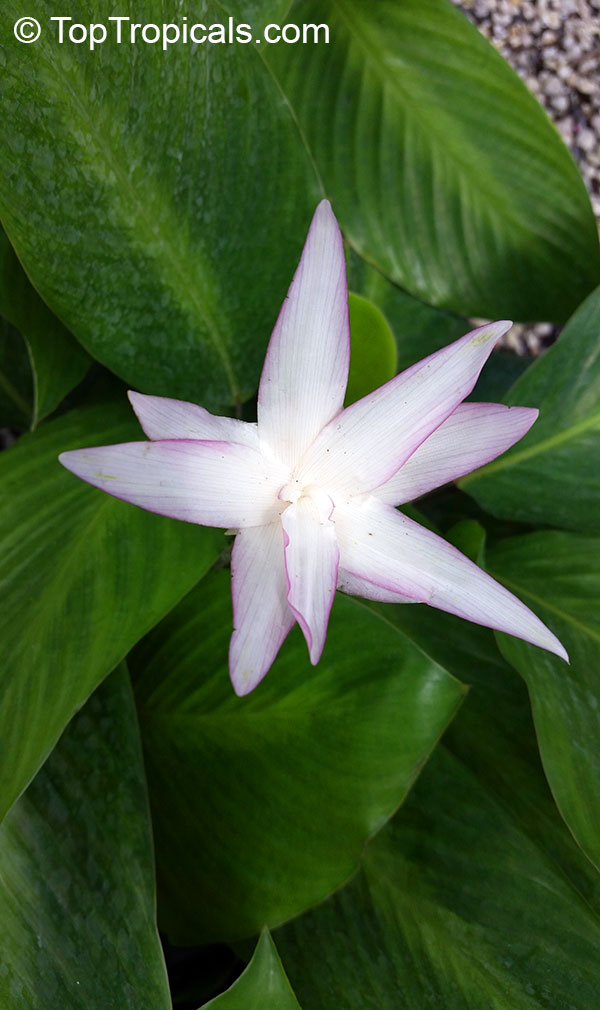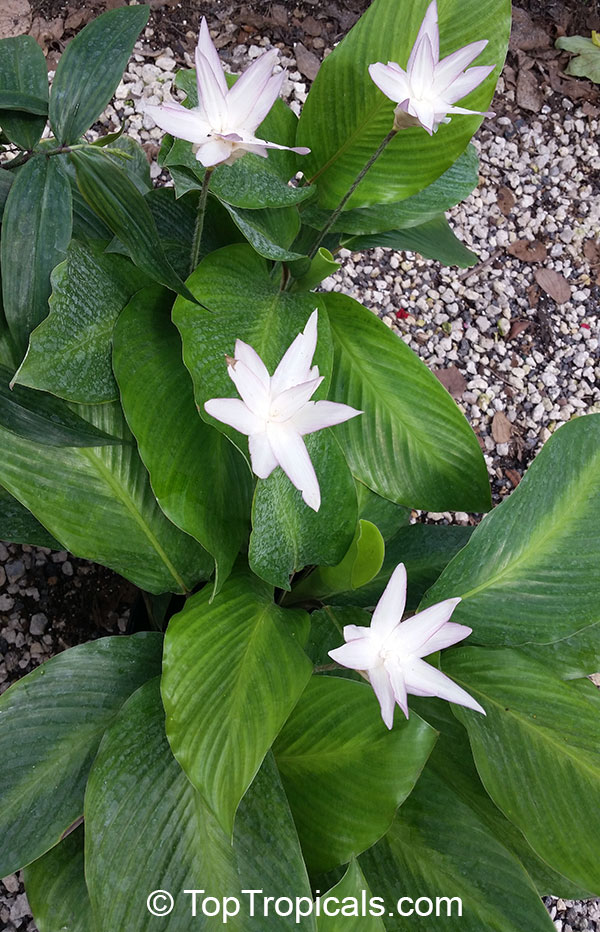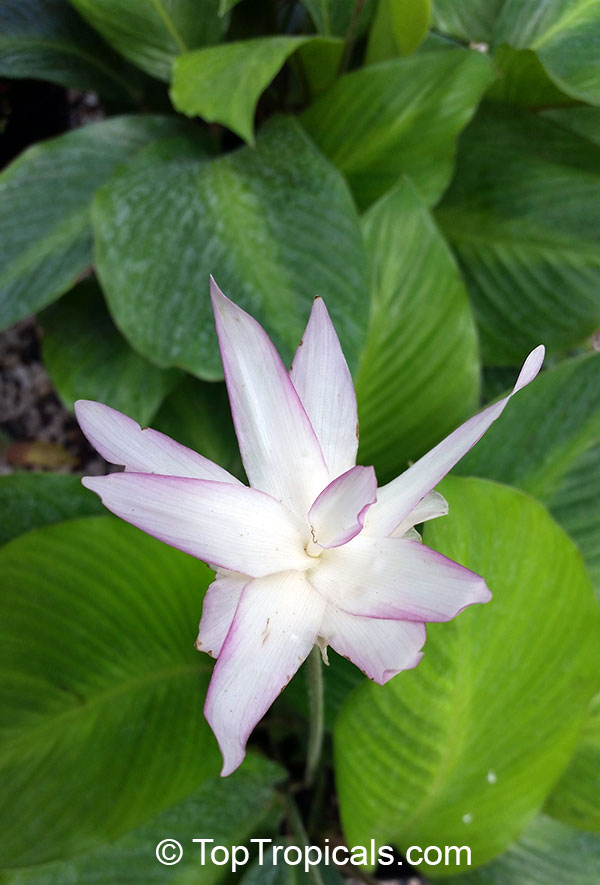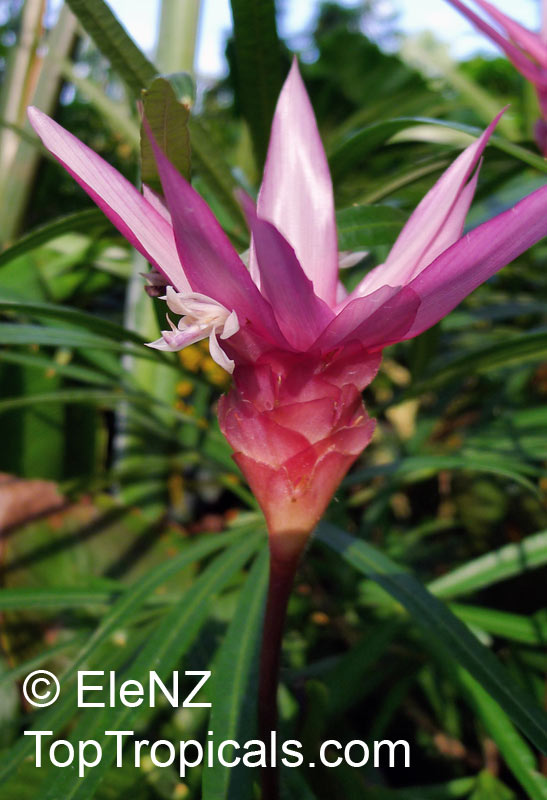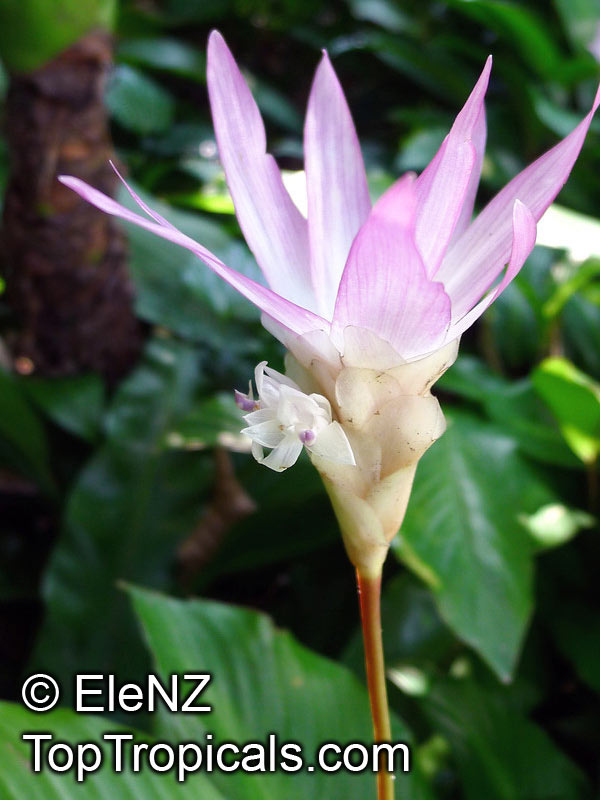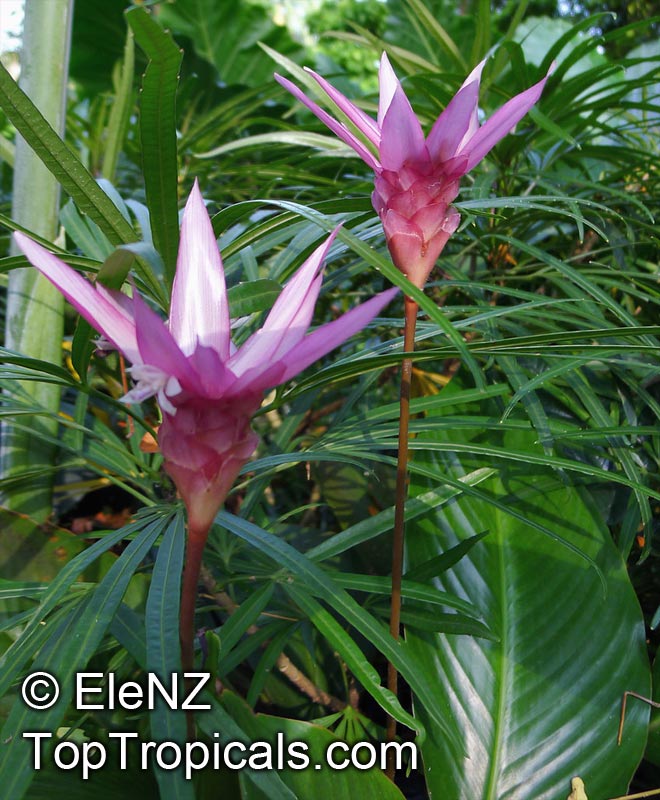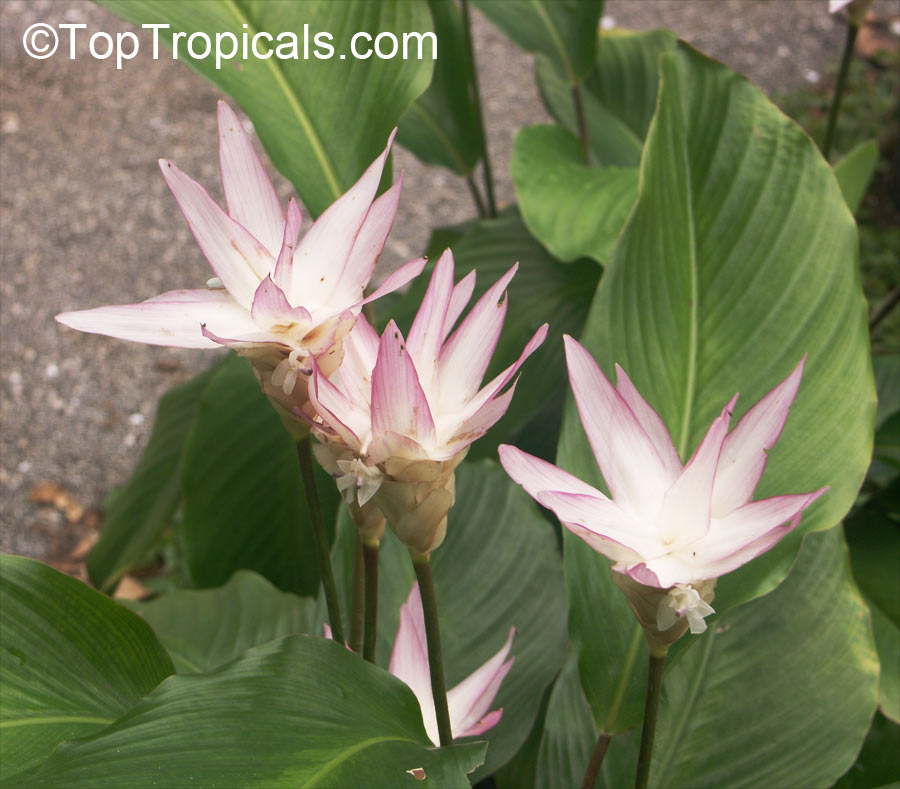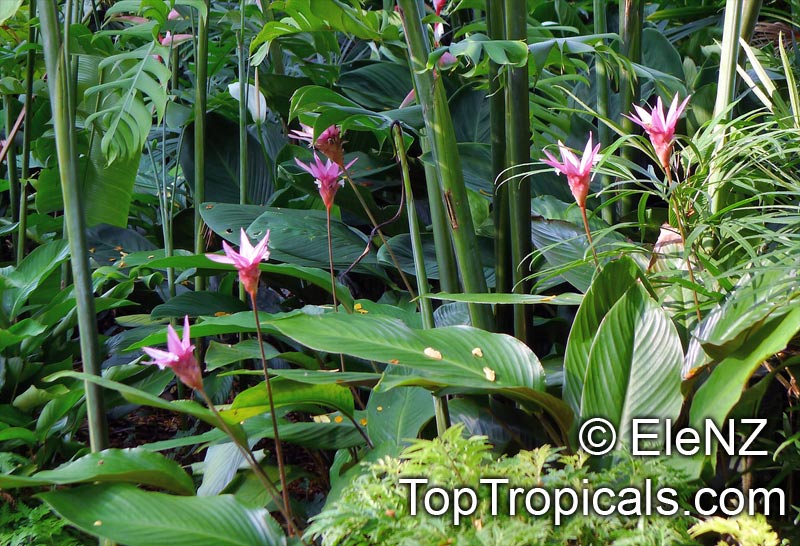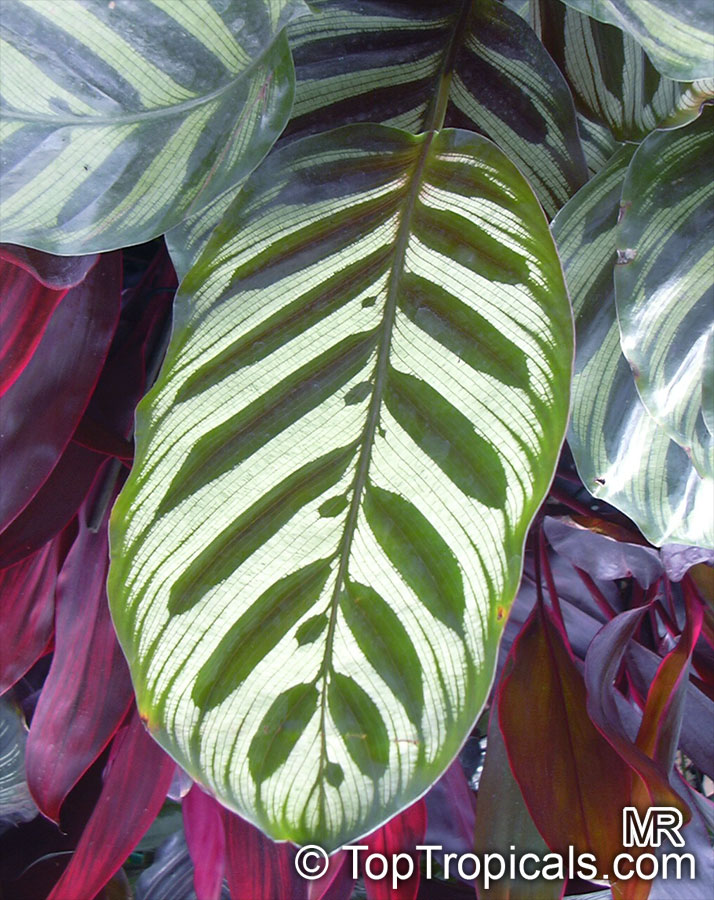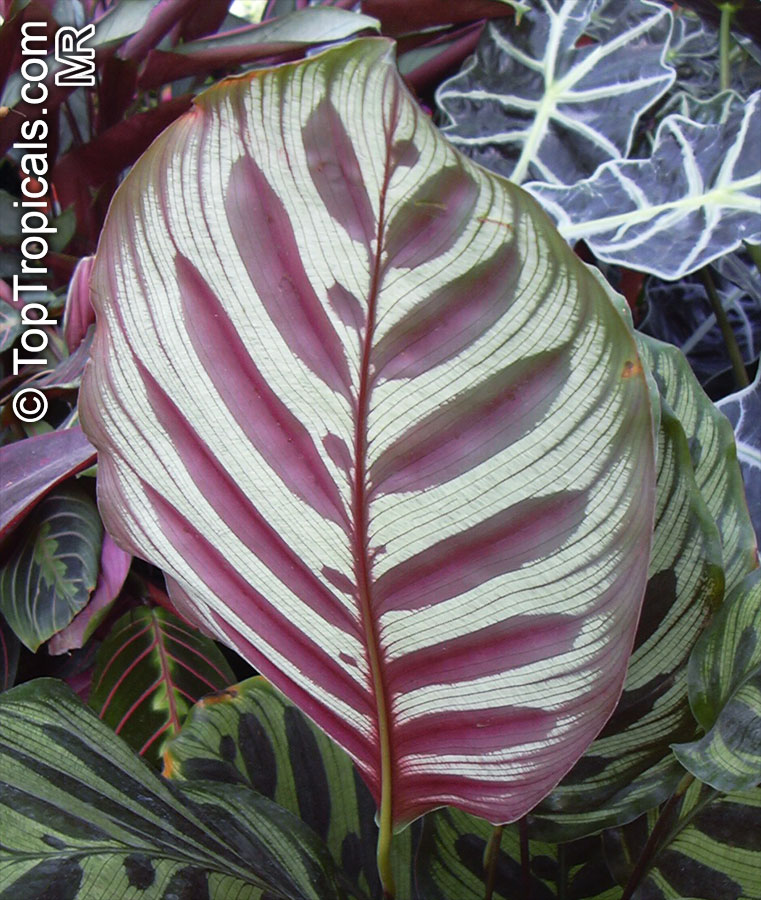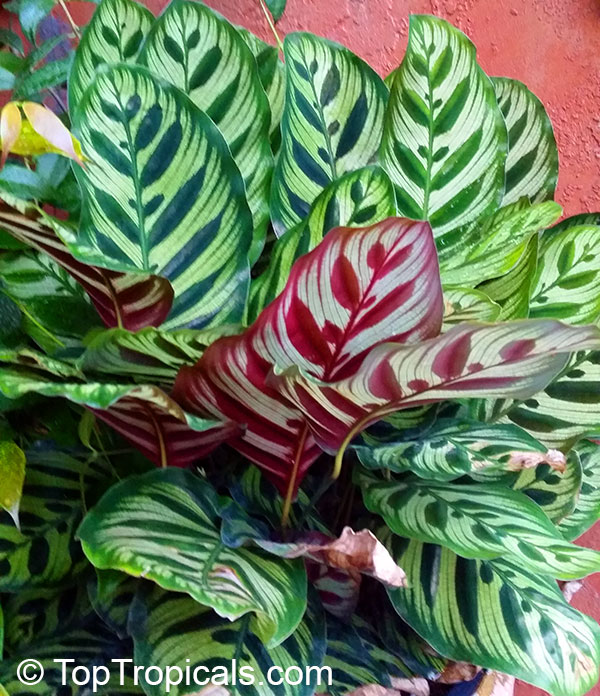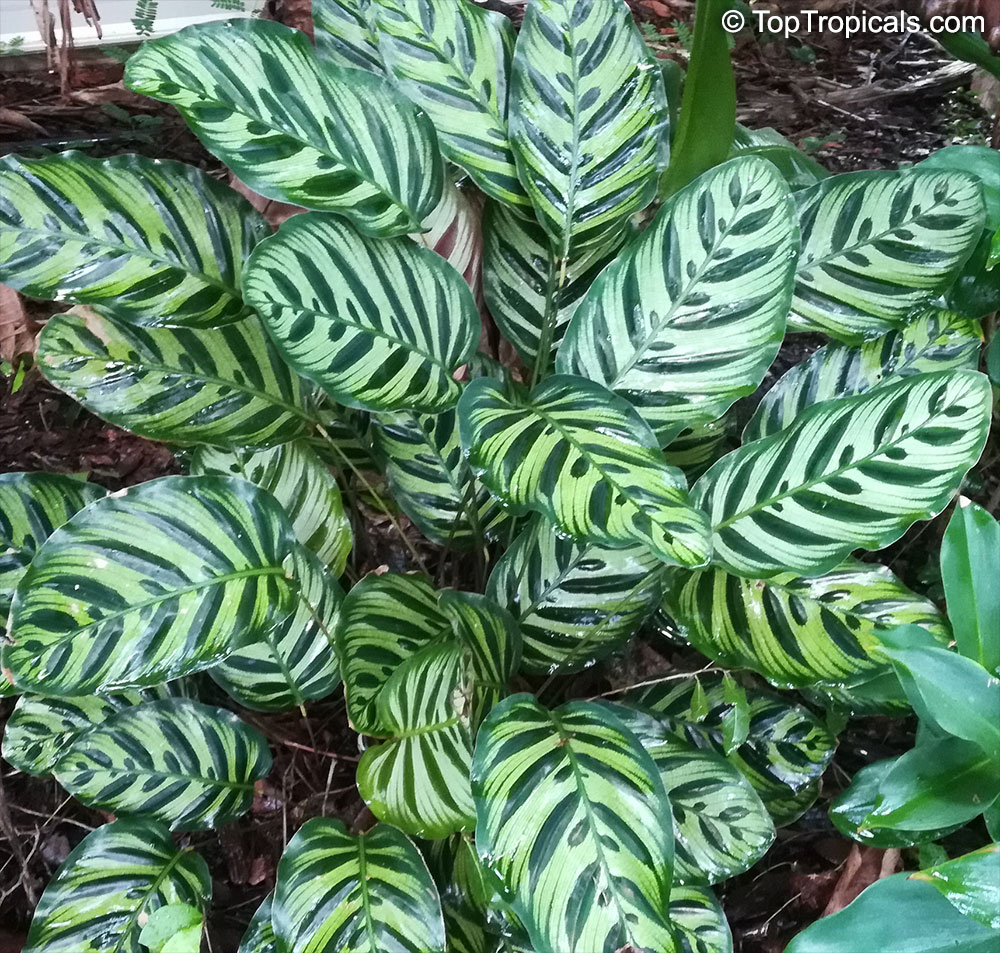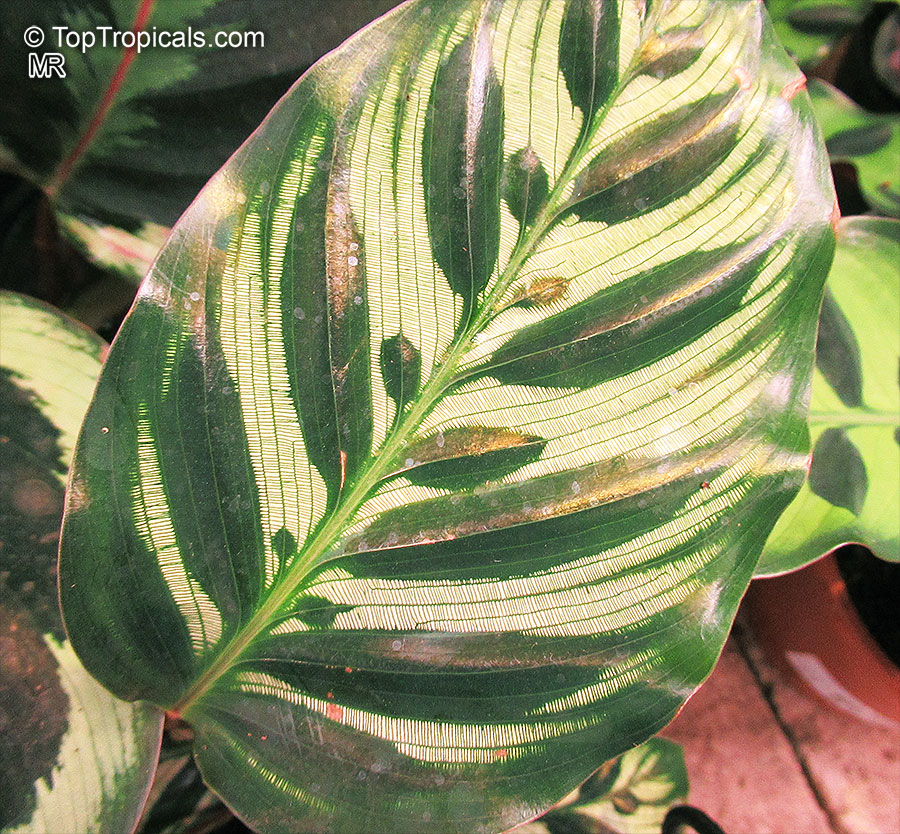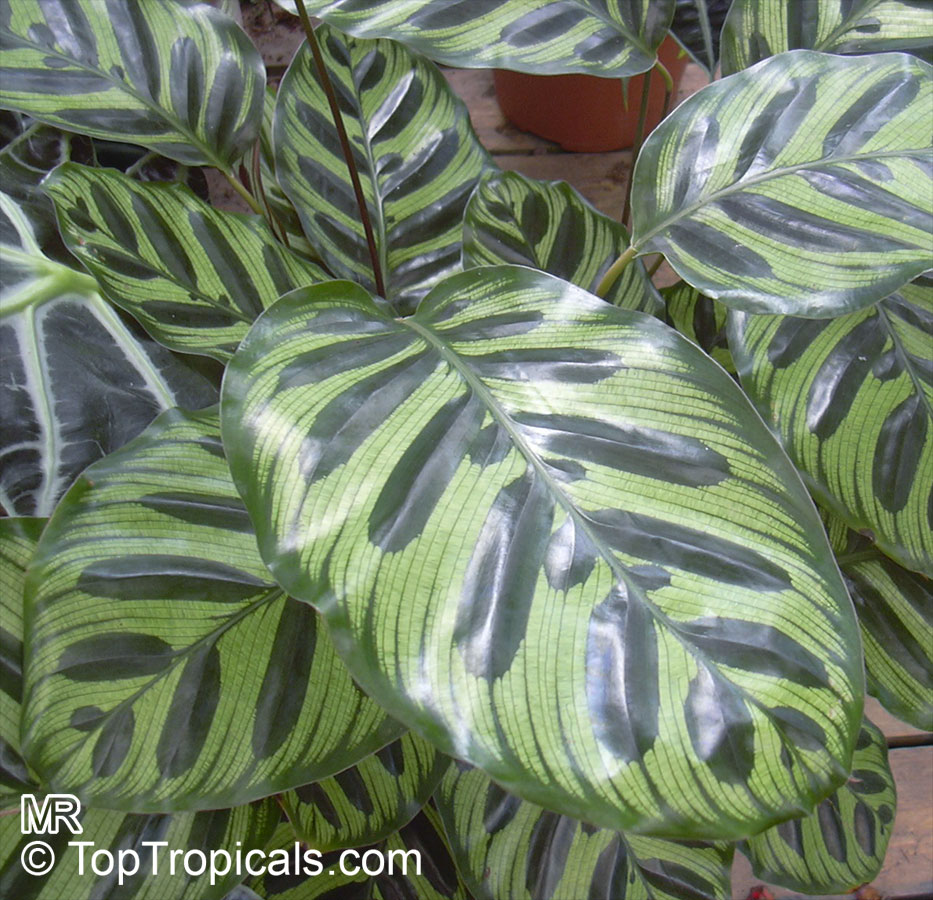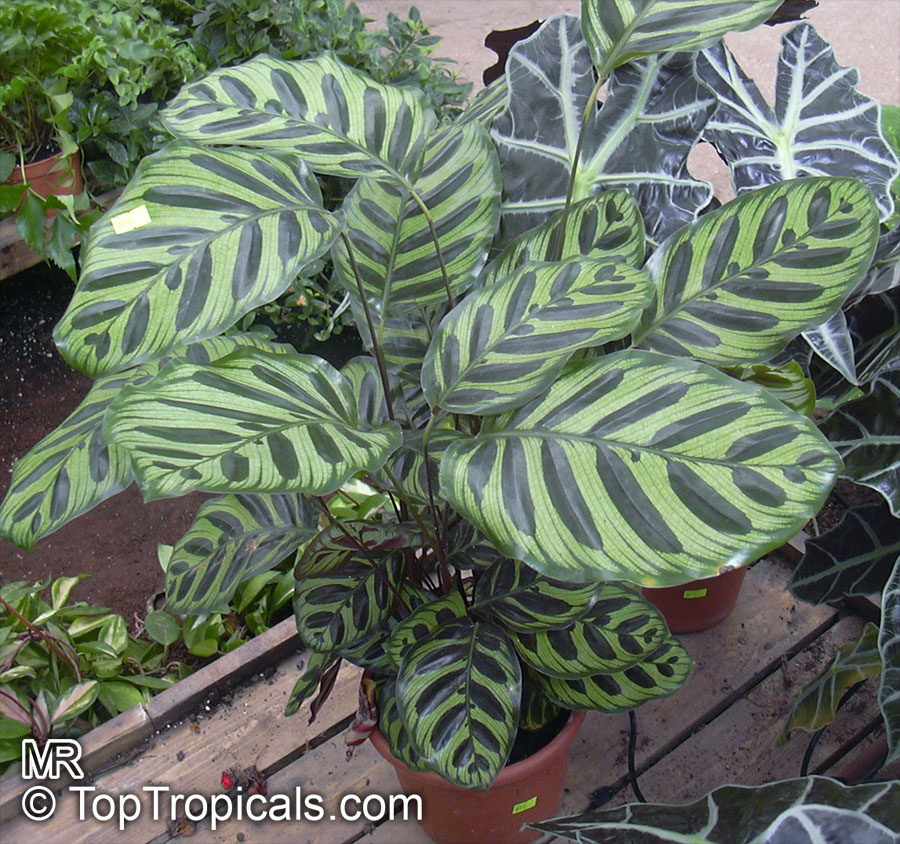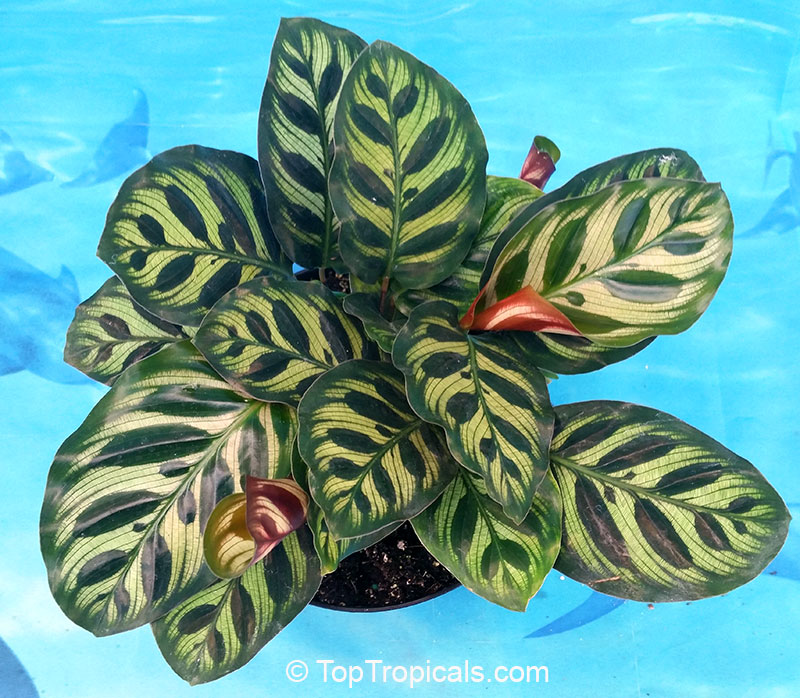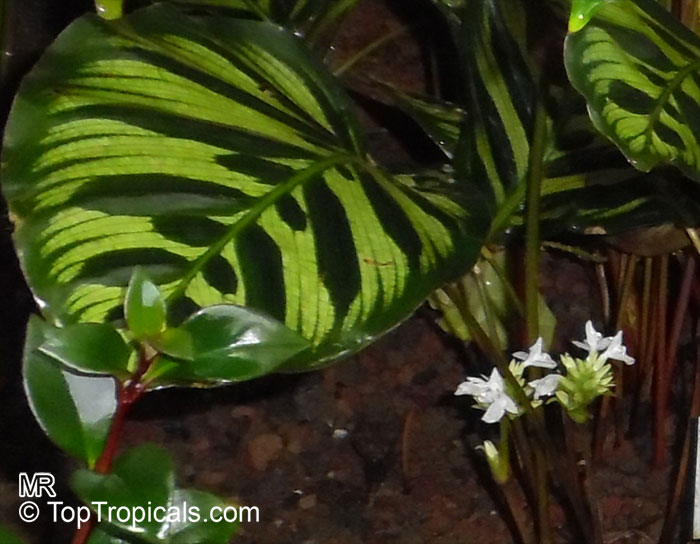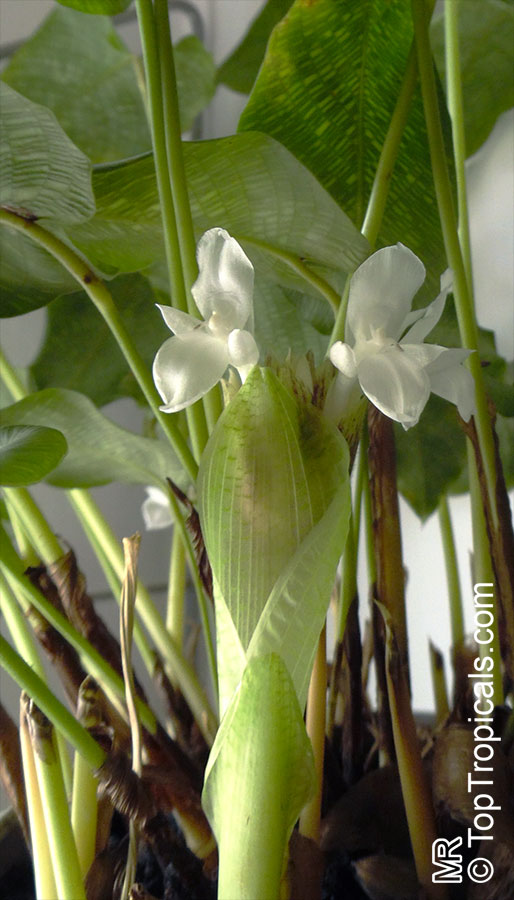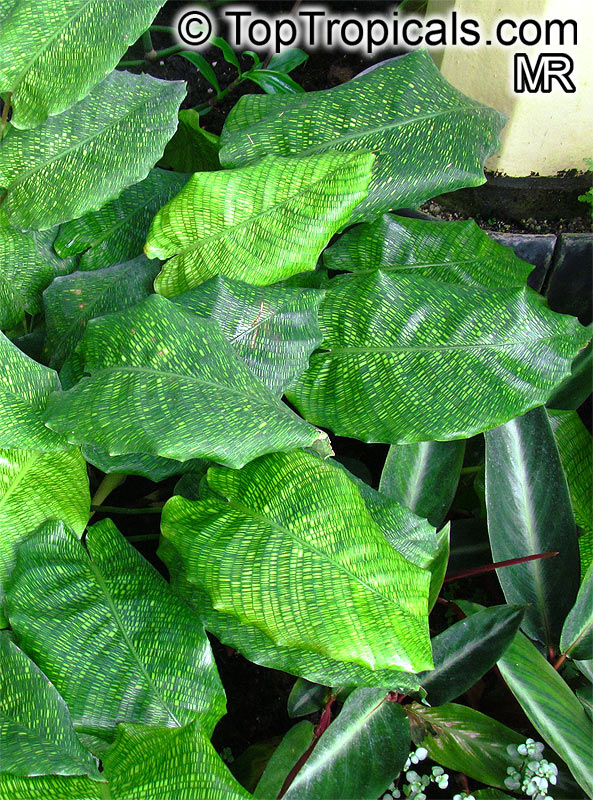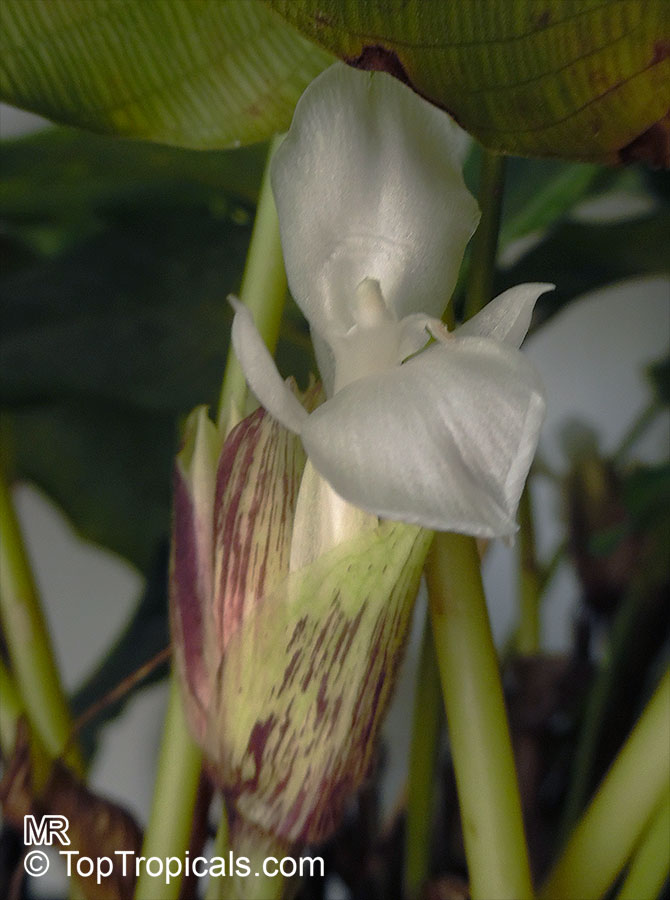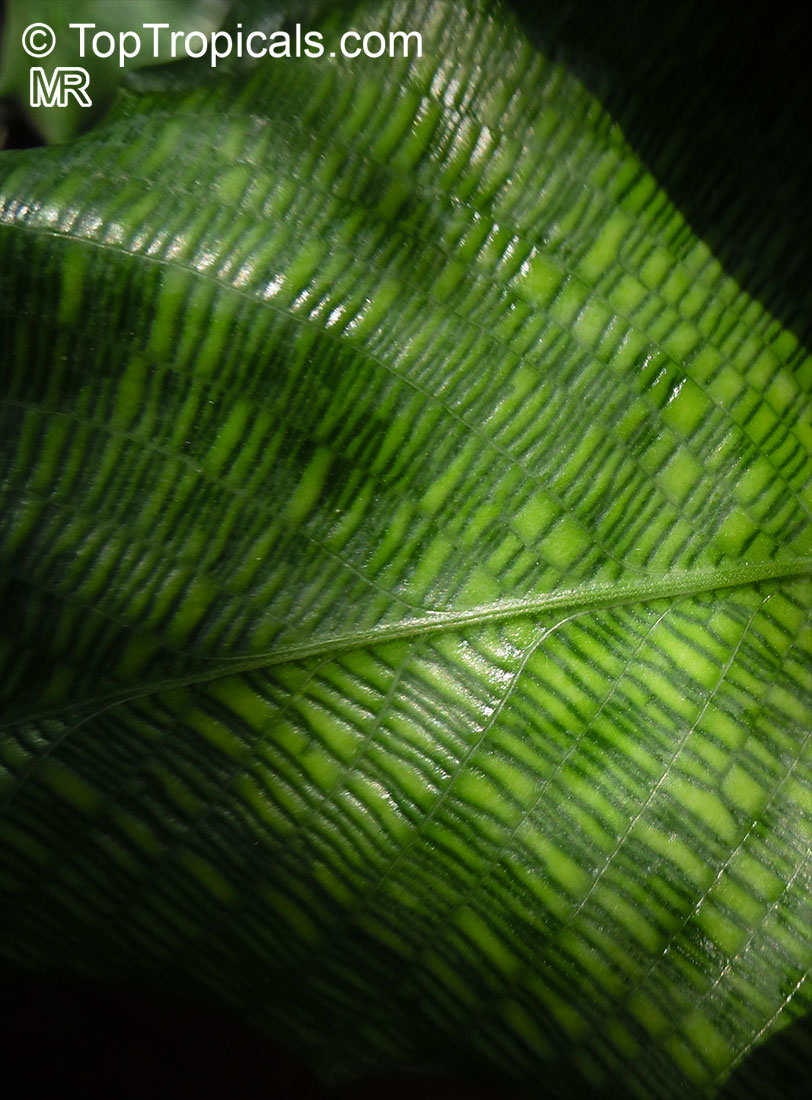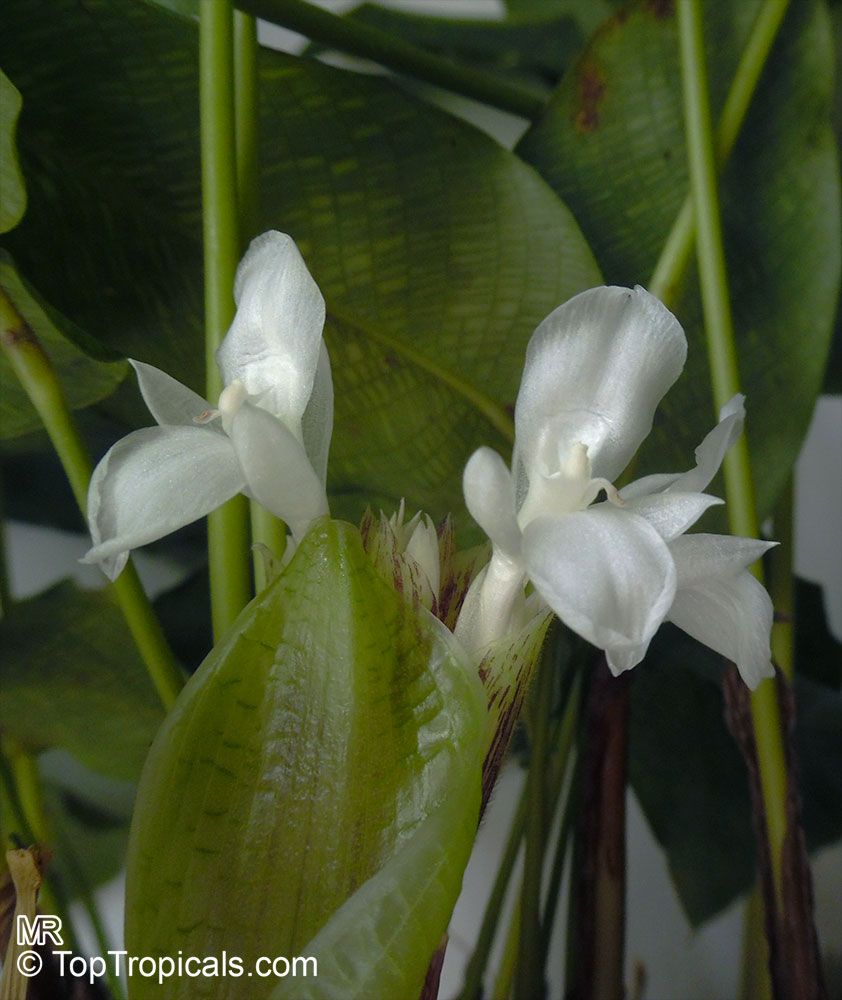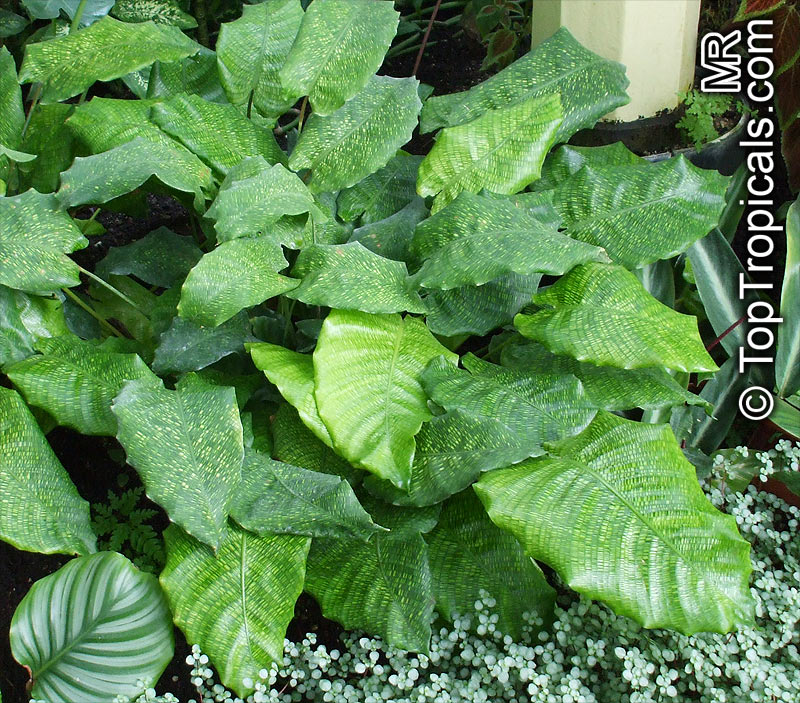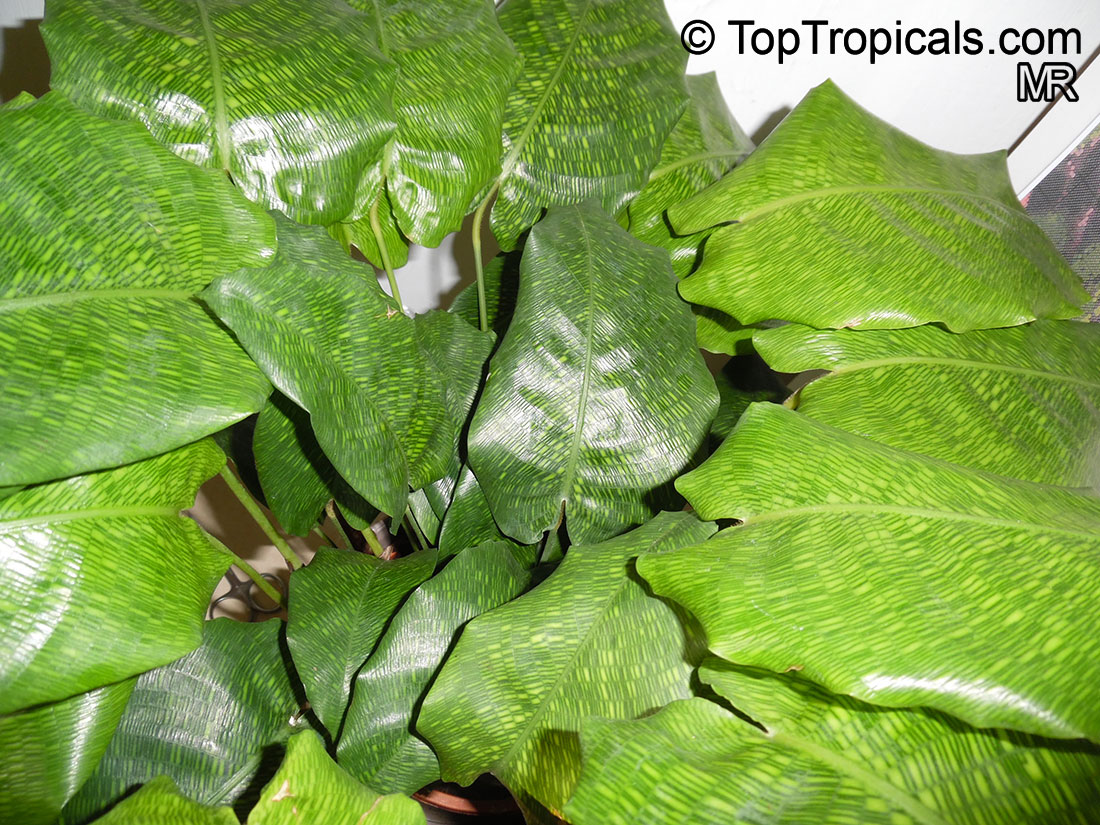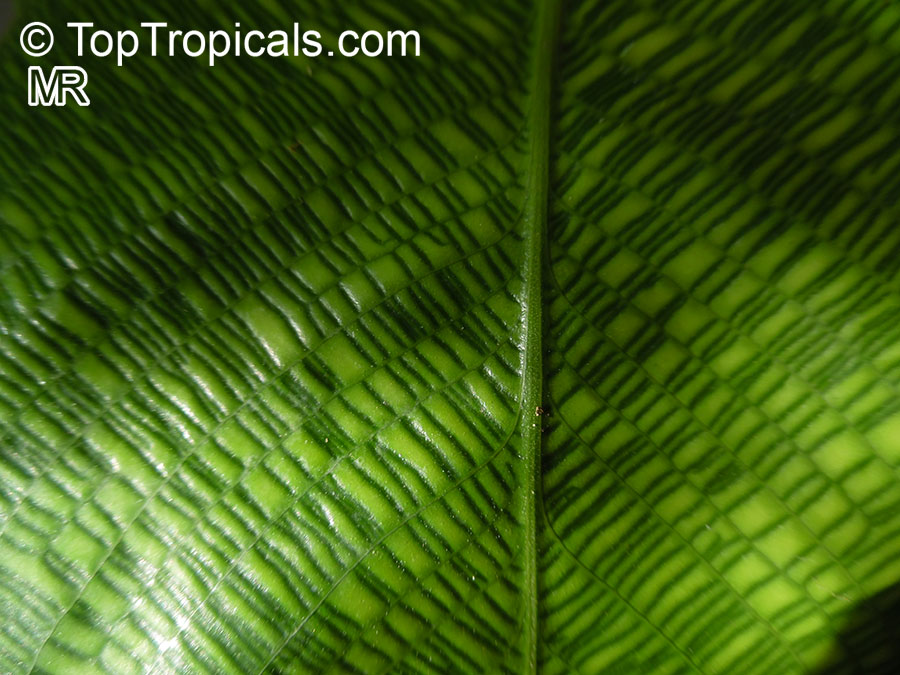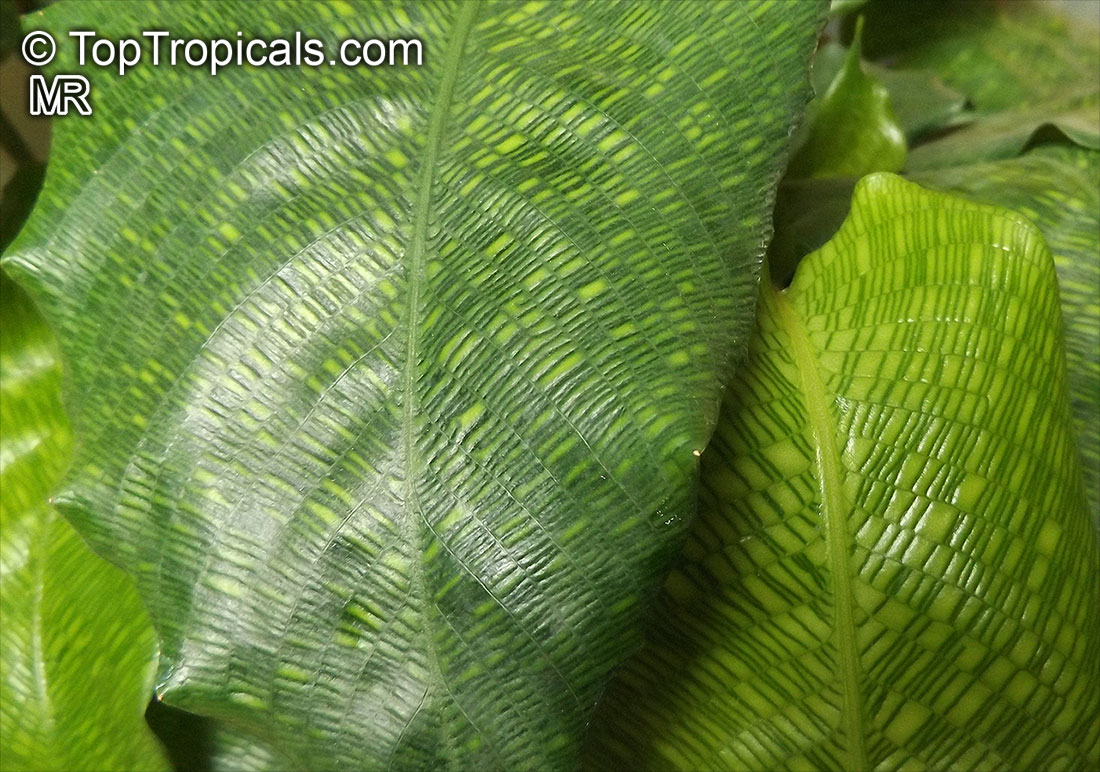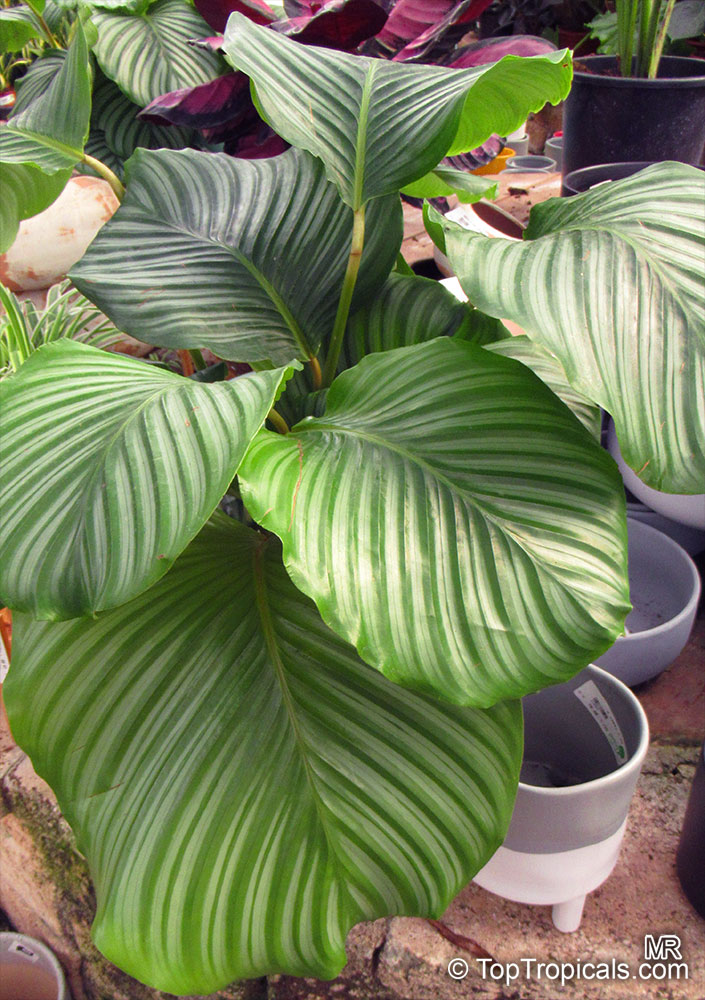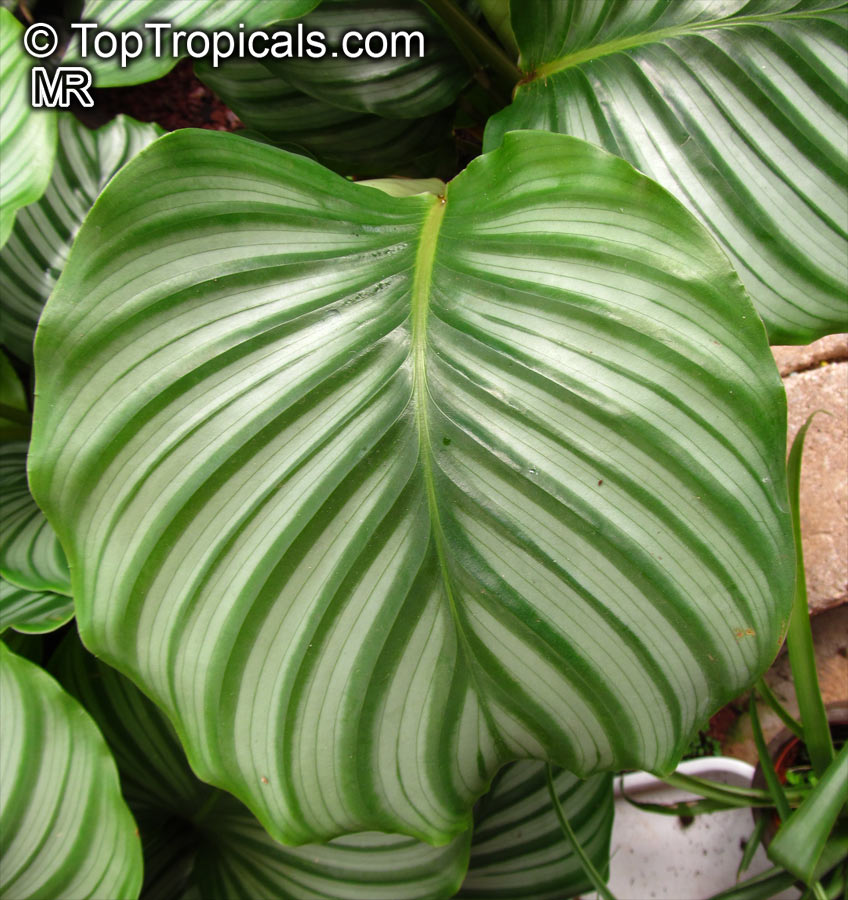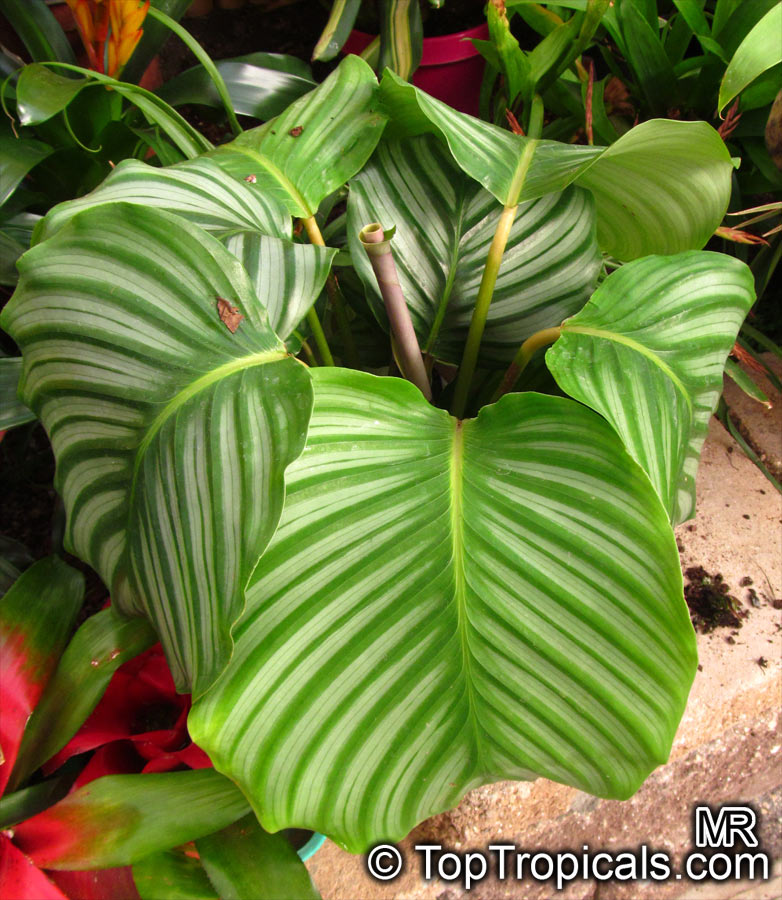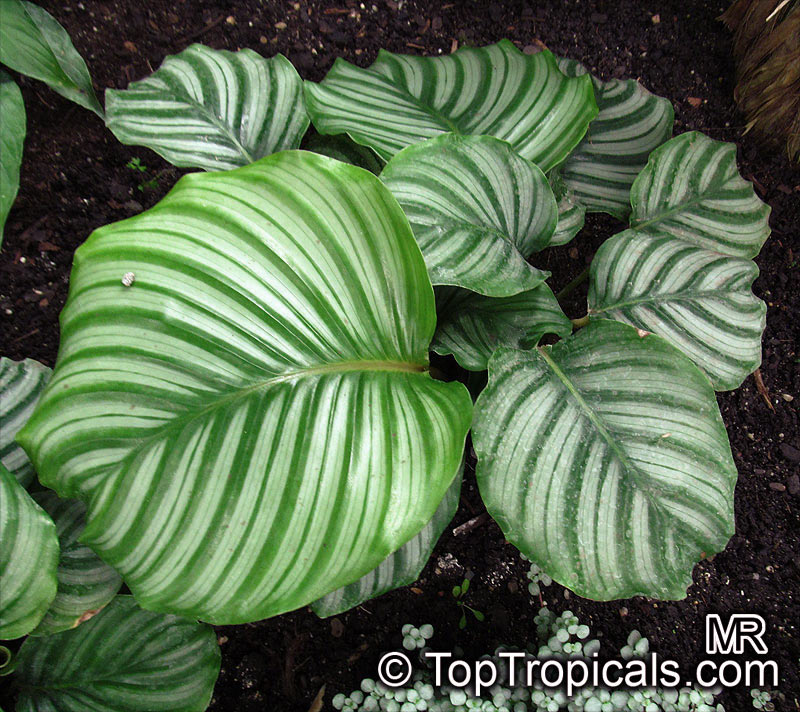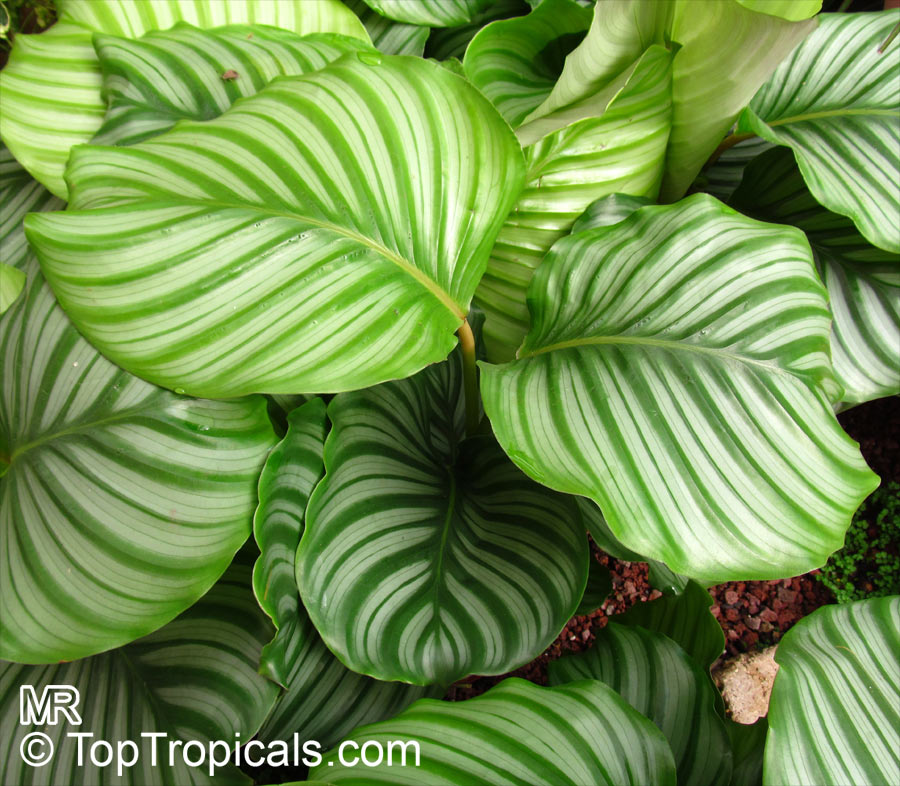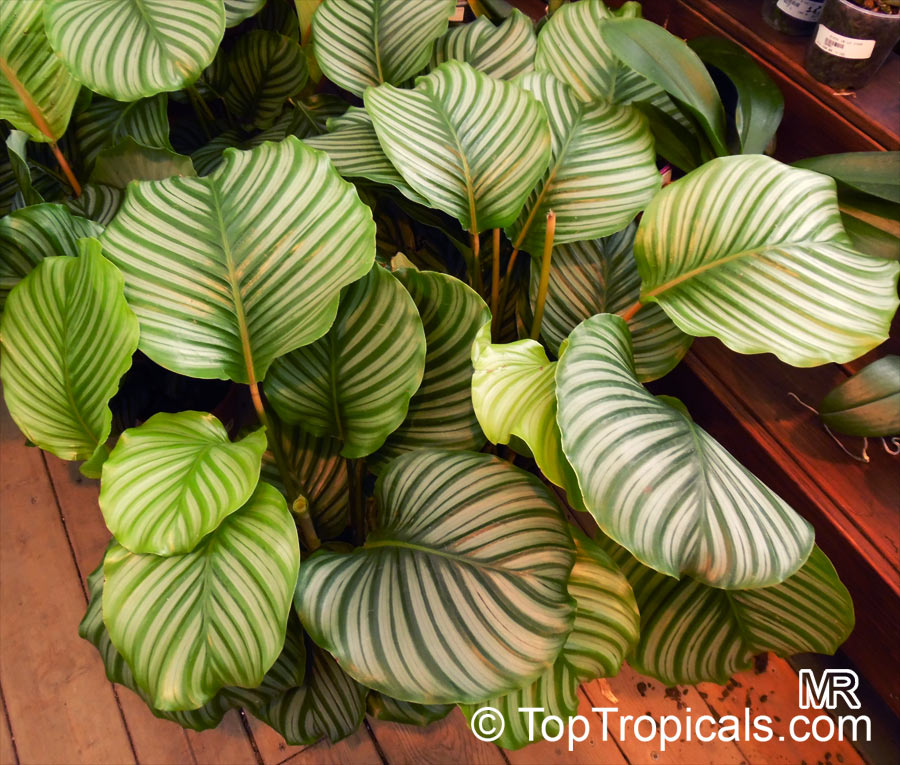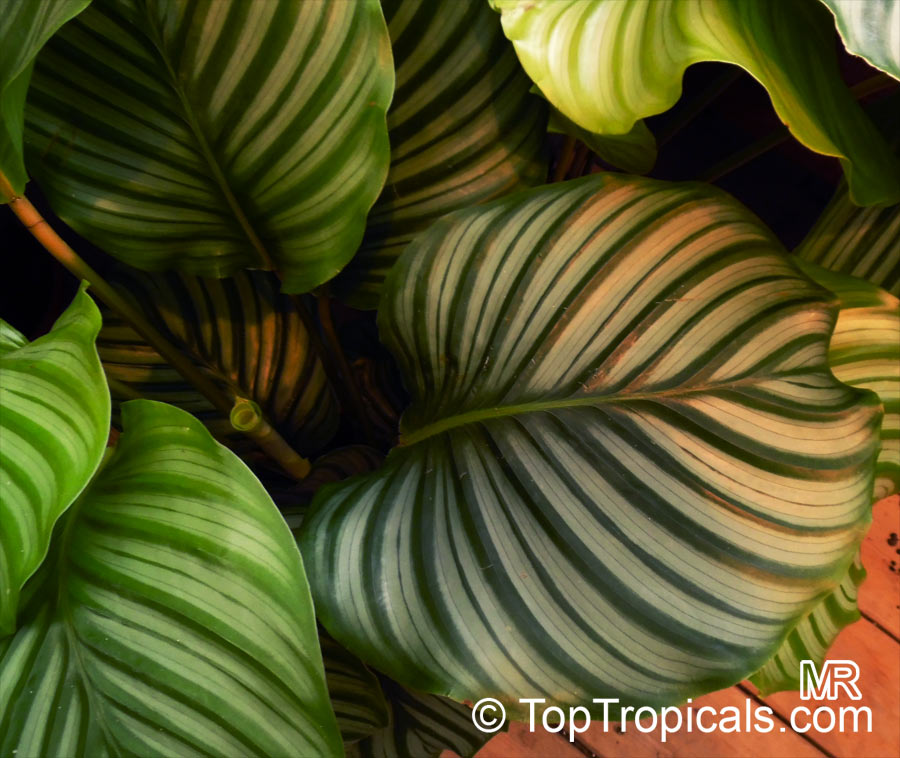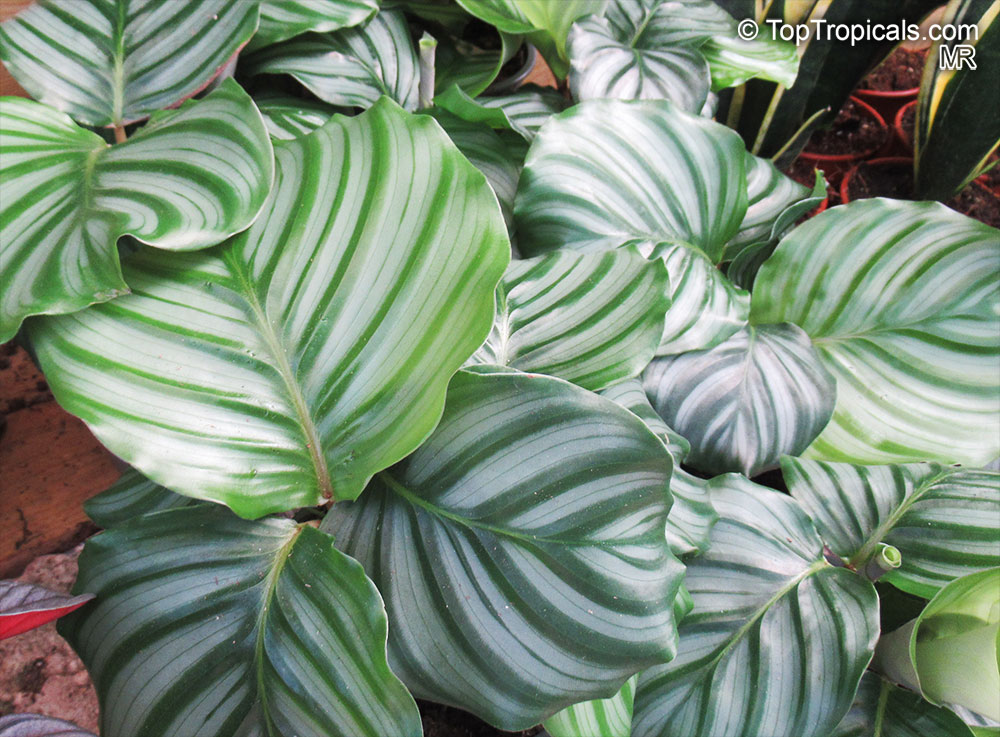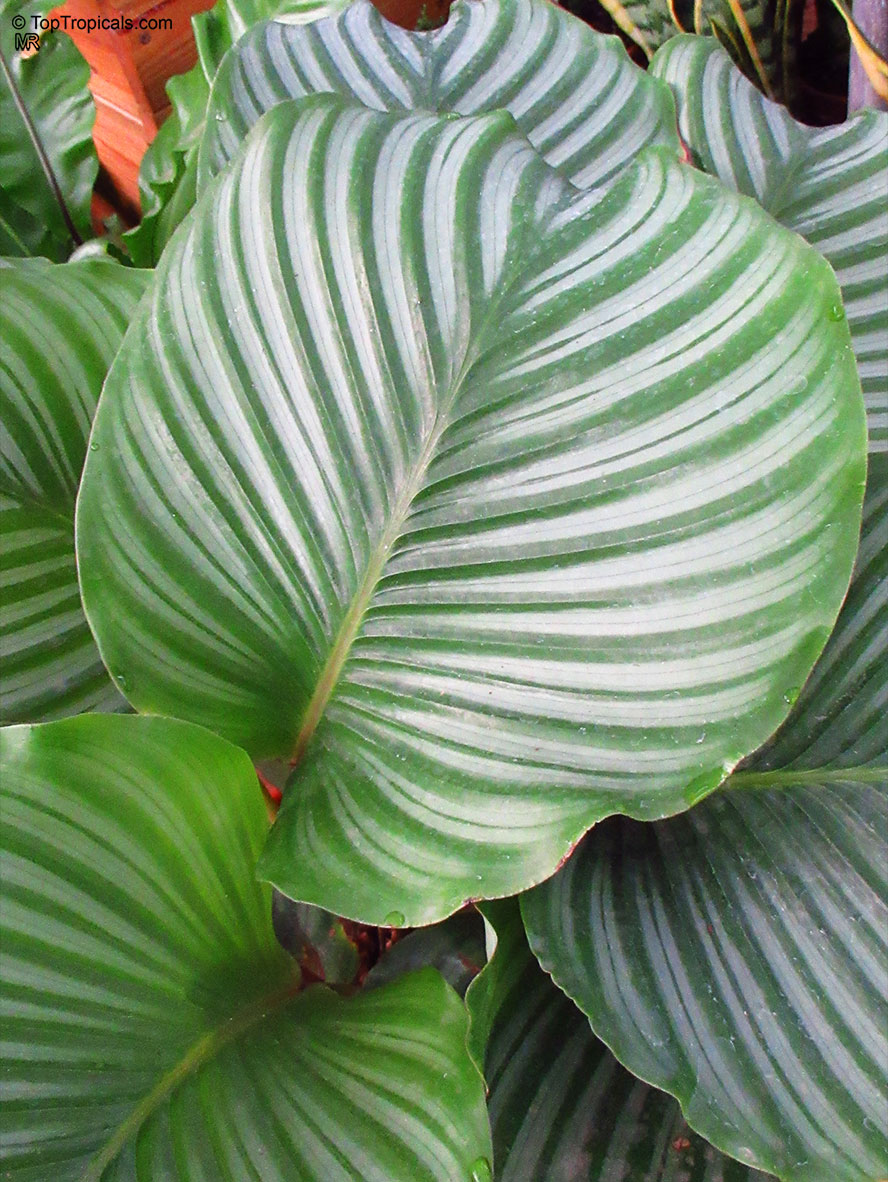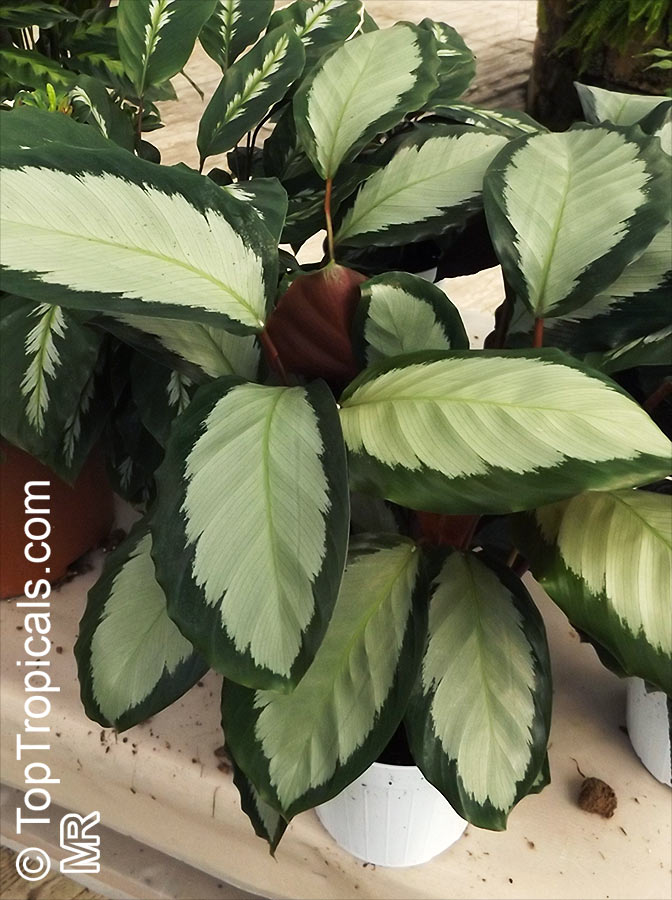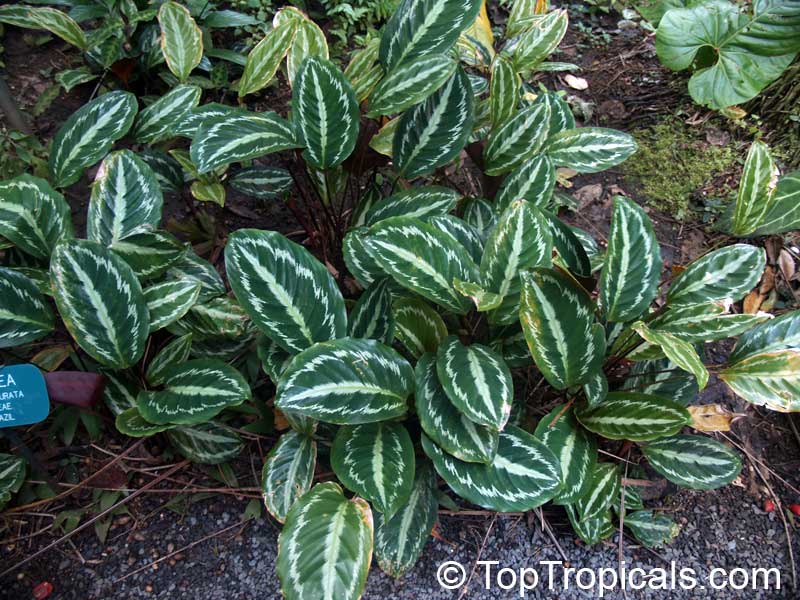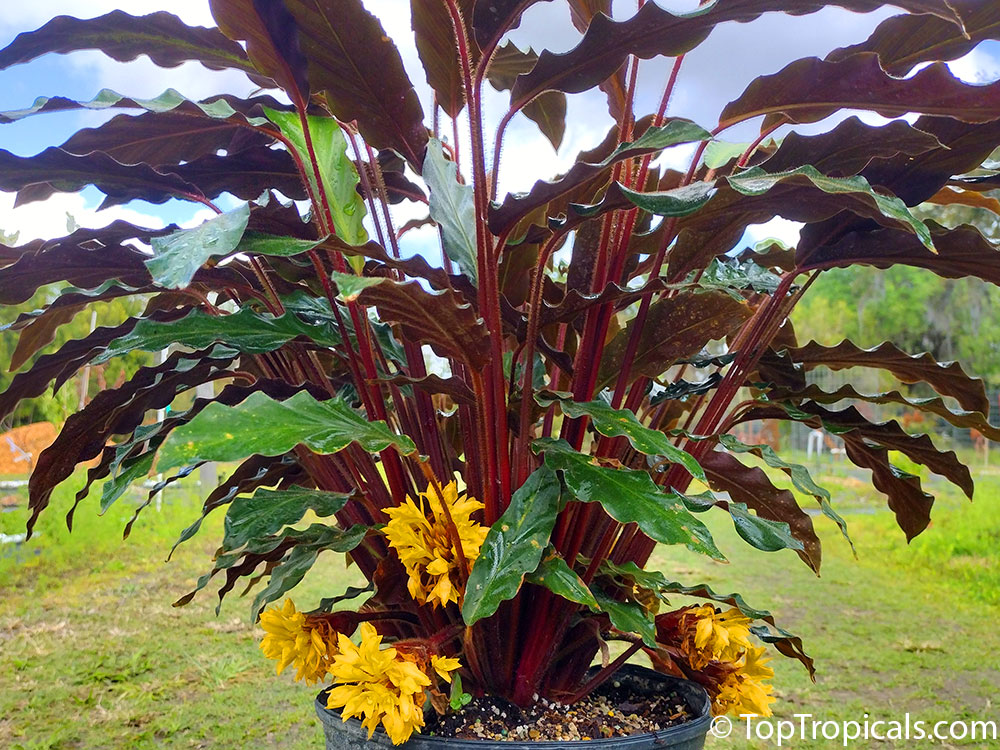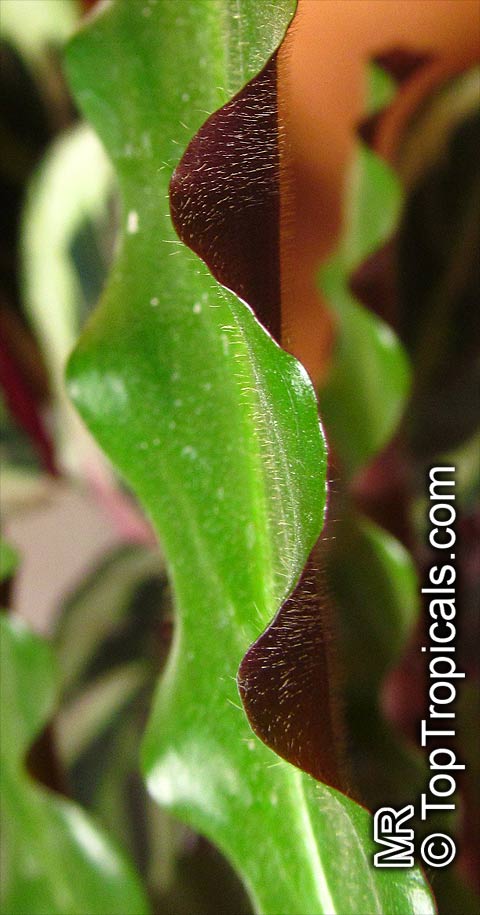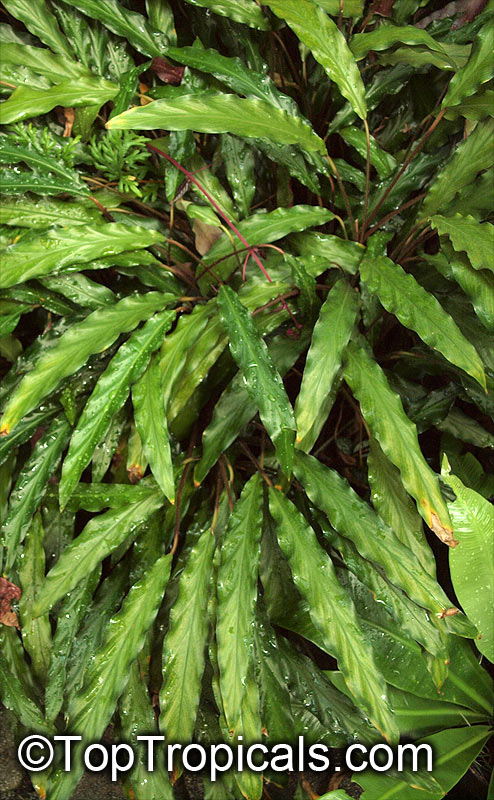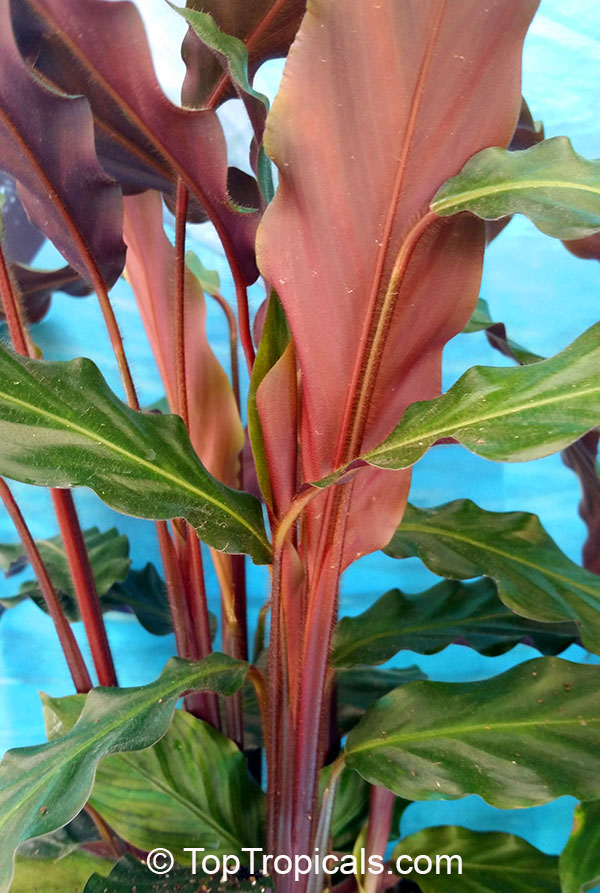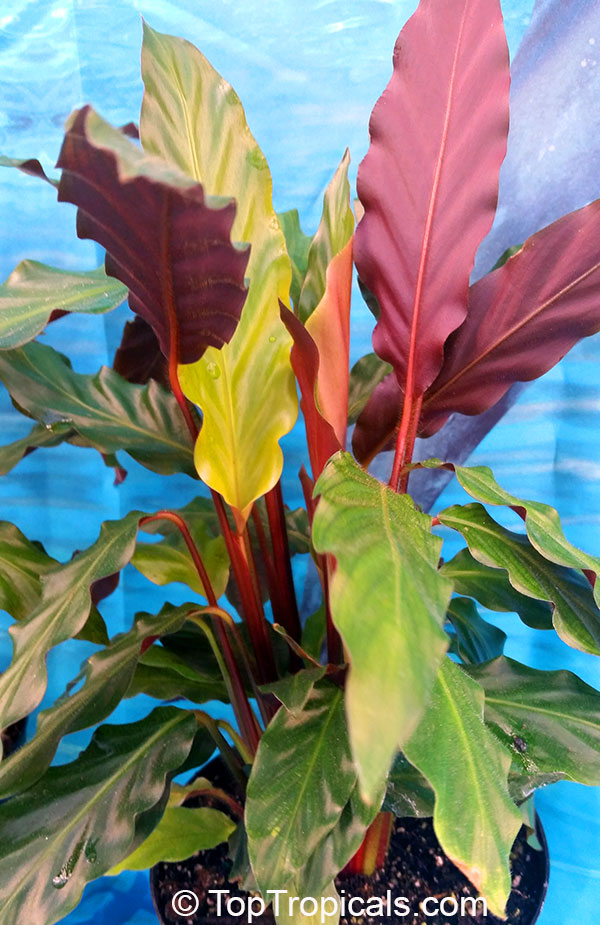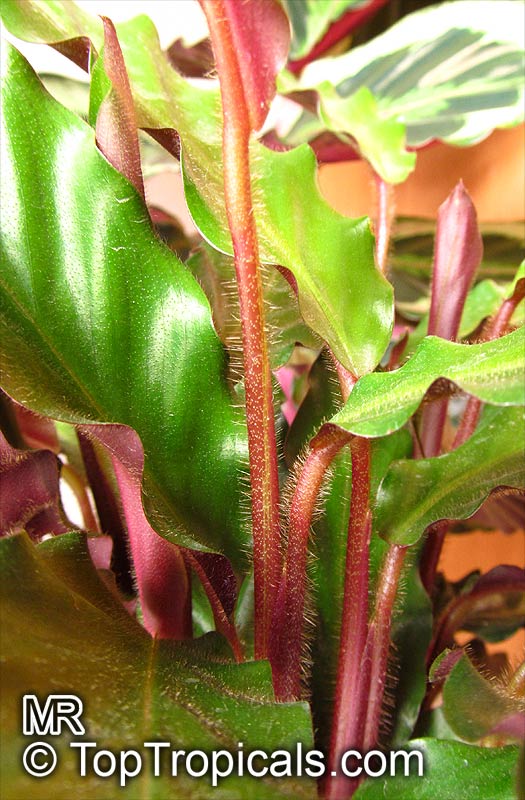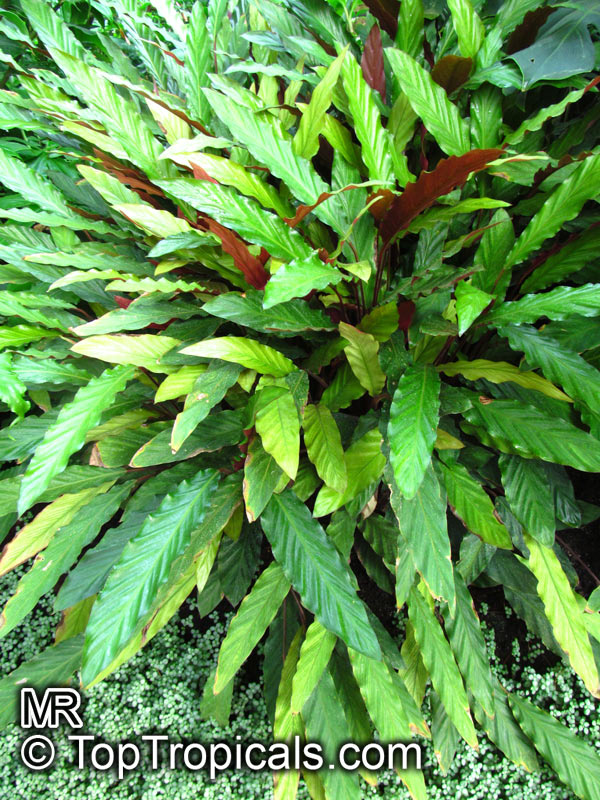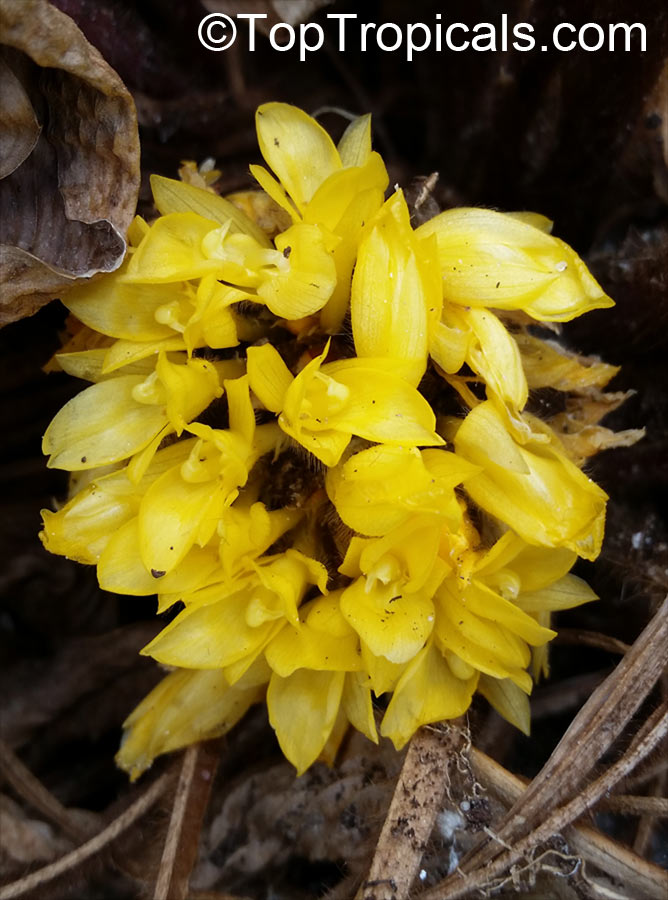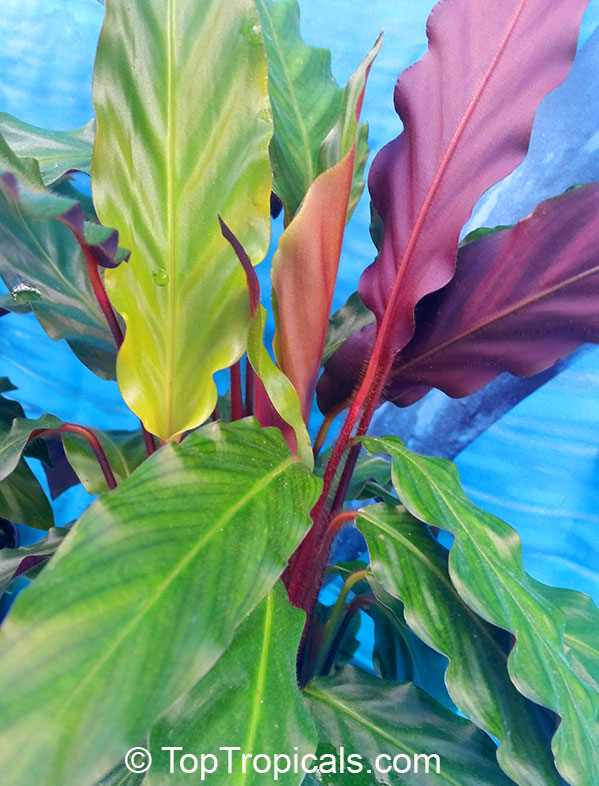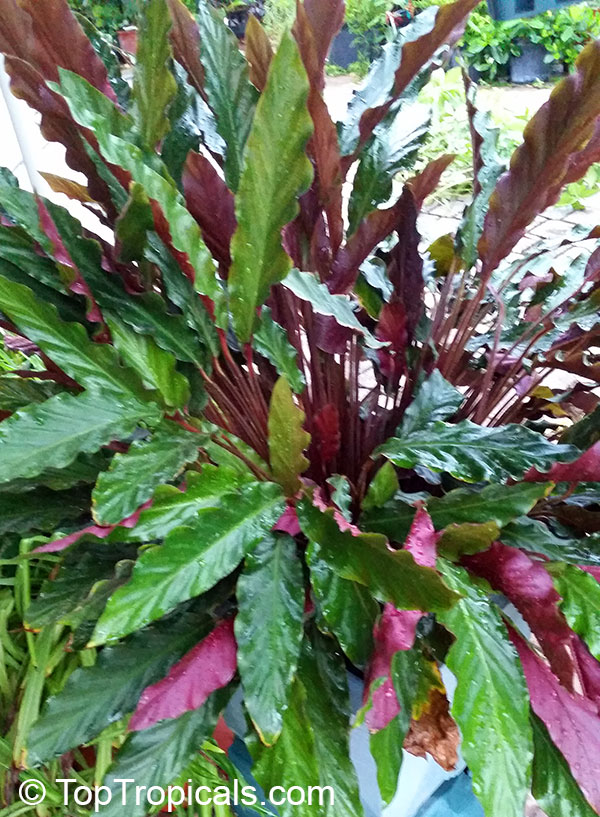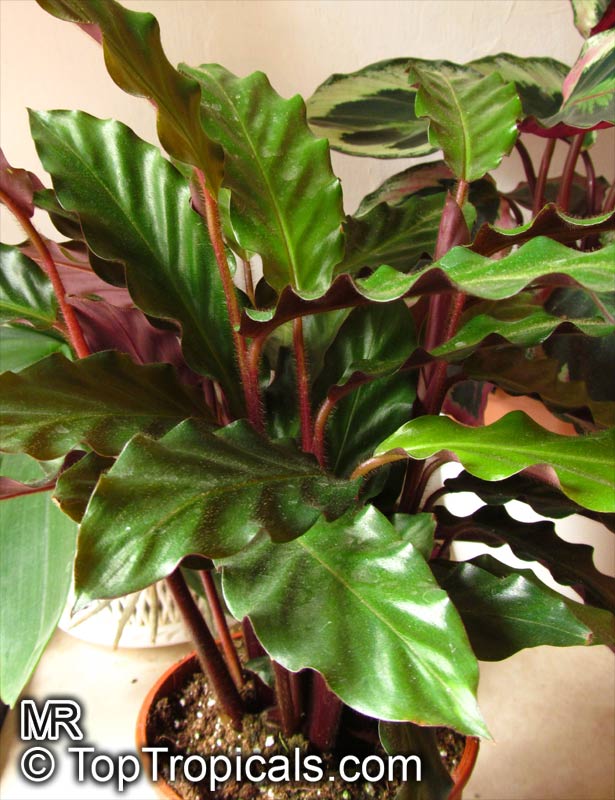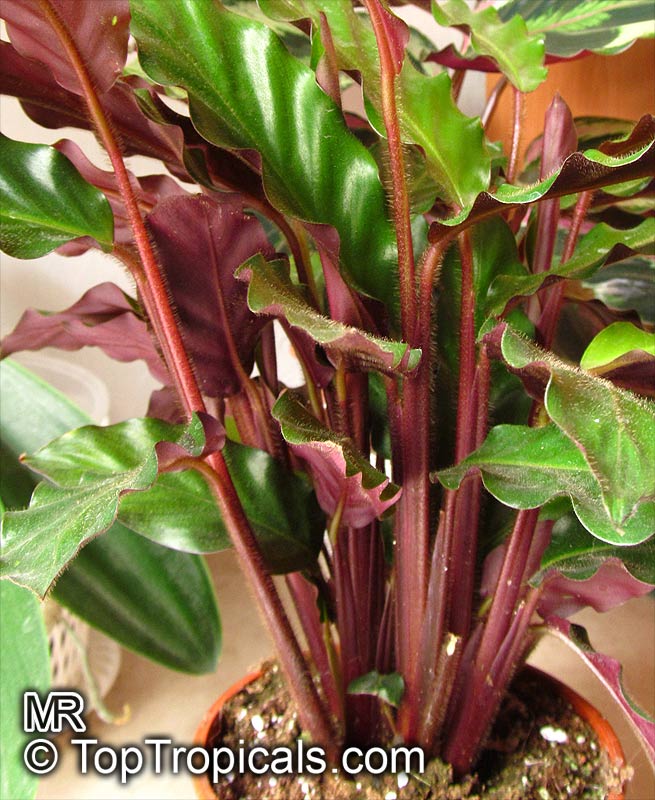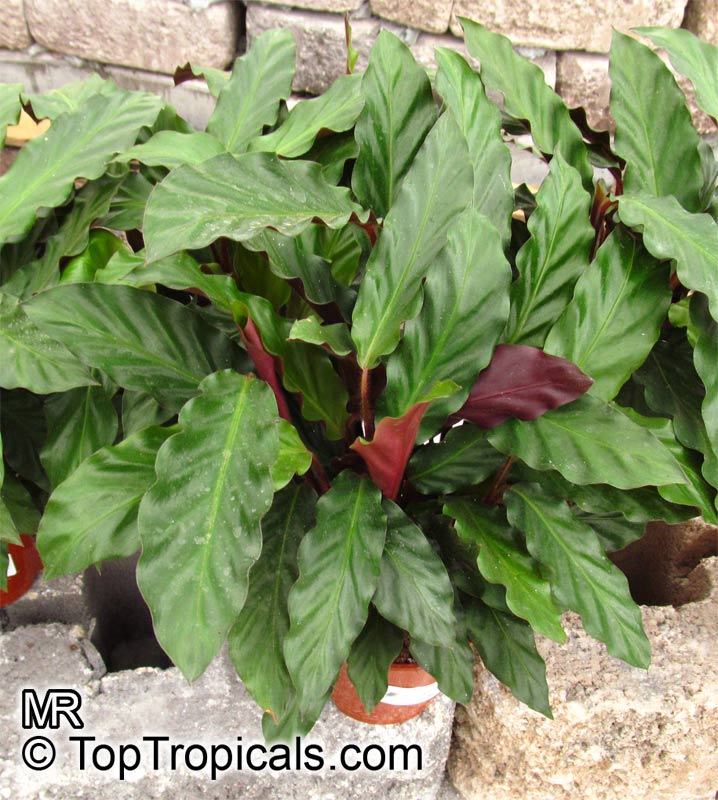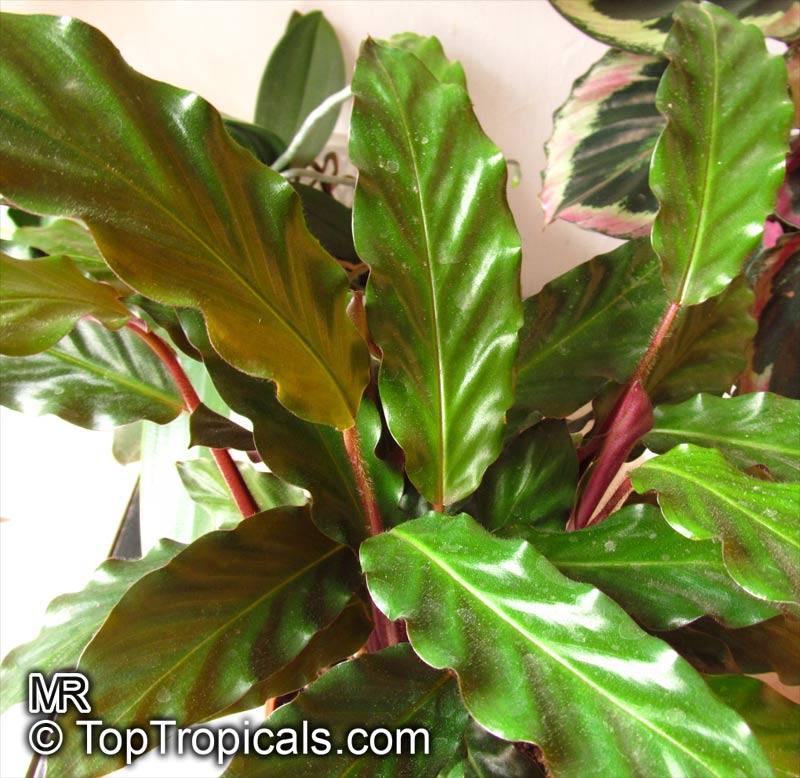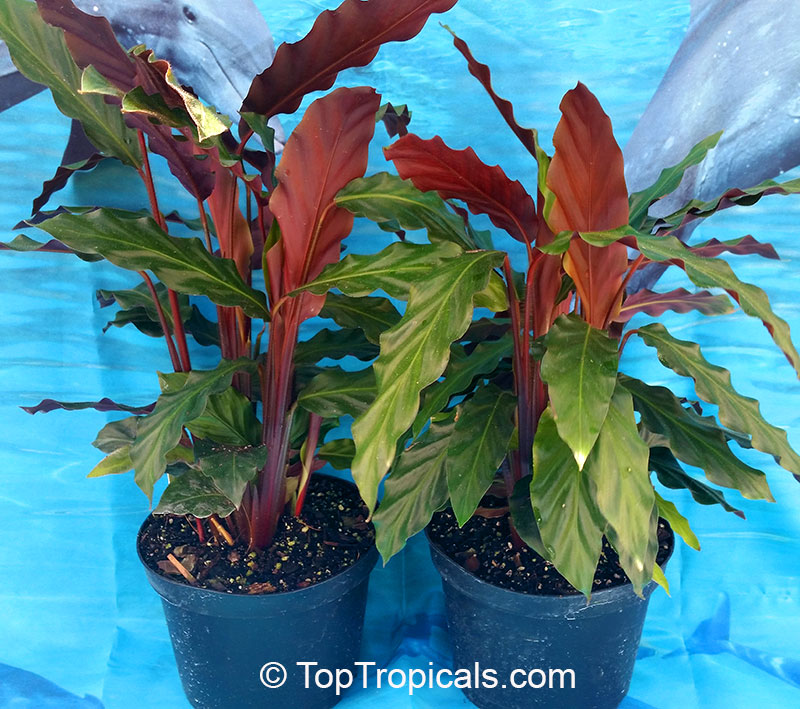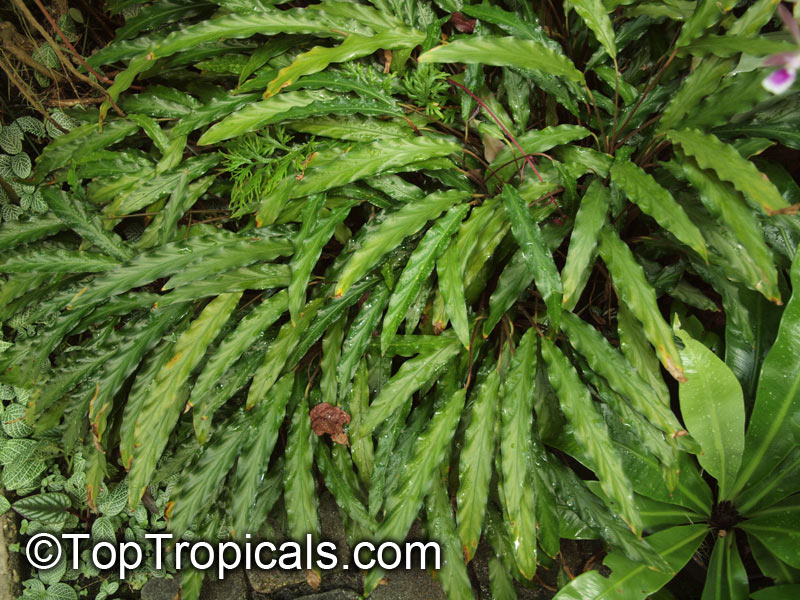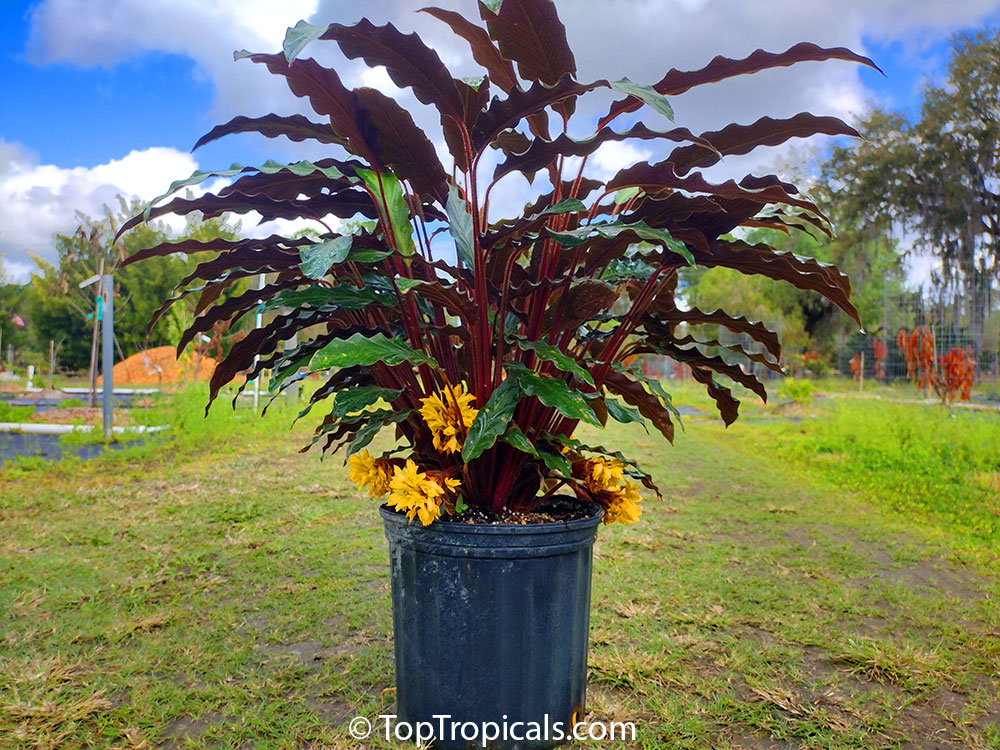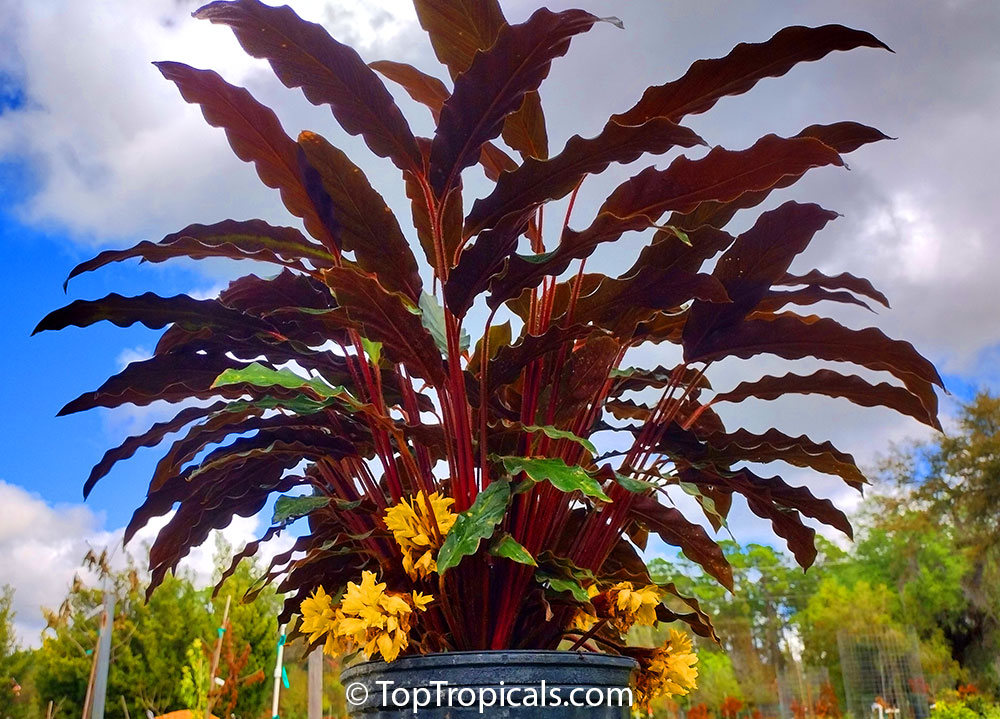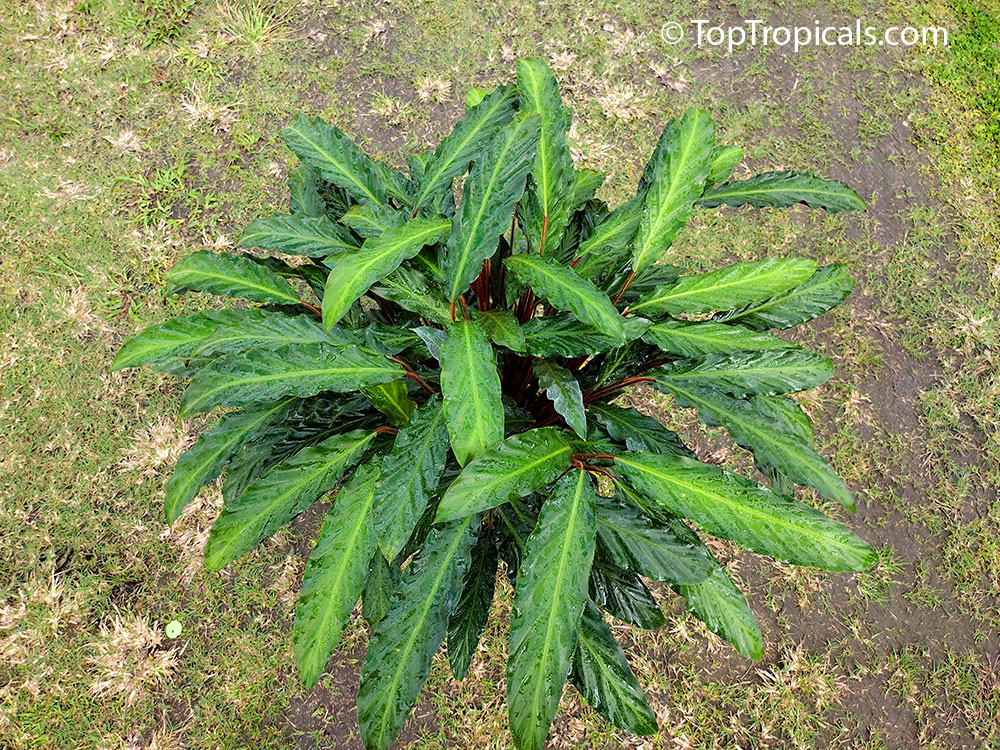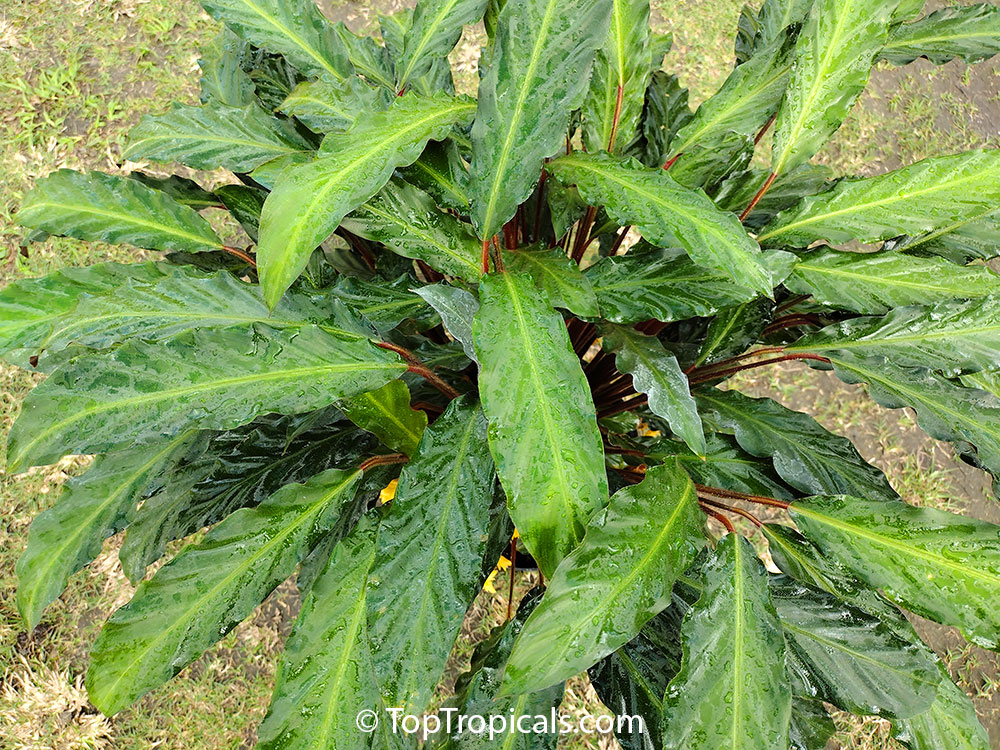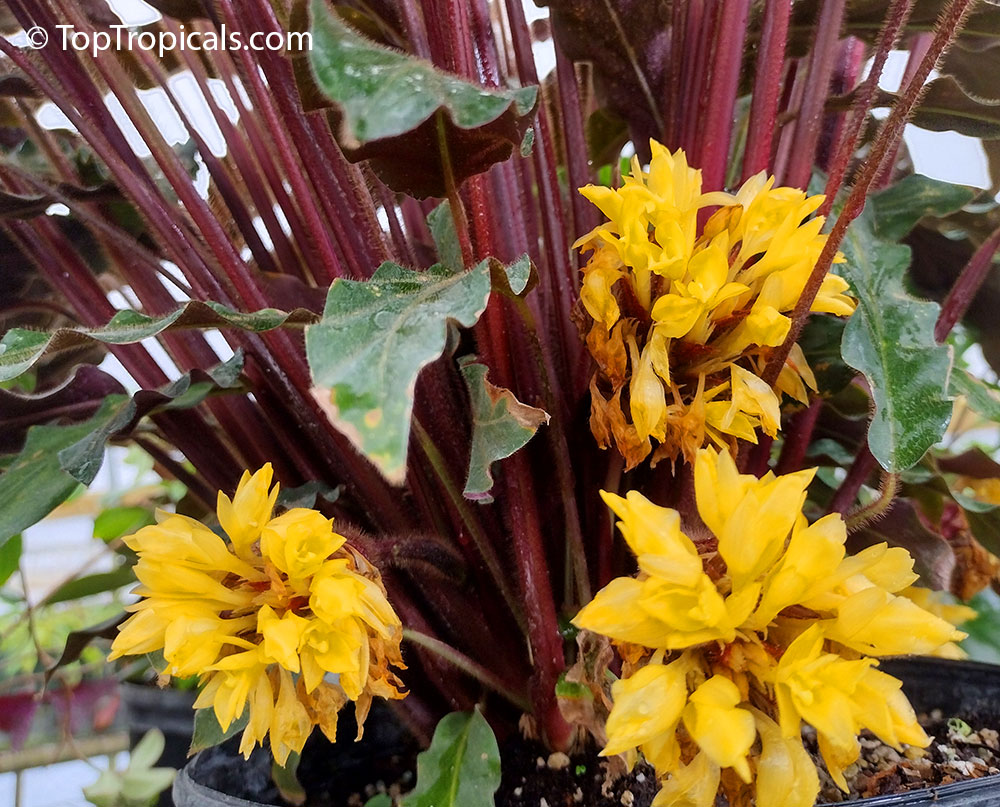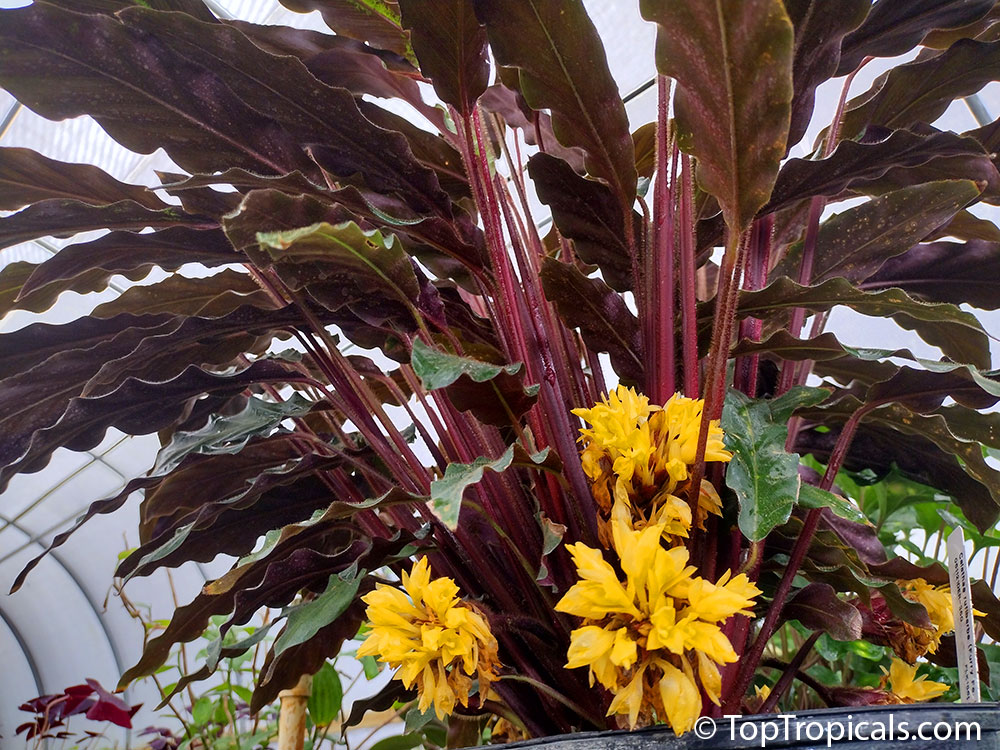Goeppertia - Plant Encyclopedia Results
| Number of plants found: 17 | Next | 
|
Go to page: | 1 | 2 |
Botanical names: Calathea lietzei, Goeppertia lietzei
Common name: Calathea
Family: Marantaceae
Origin: Brazil
Hardiness: 50°F





Calathea lietzei is a compact tropical plant known for its striking patterned foliage. It typically grows up to 2 feet tall and prefers warm, humid conditions with partial shade. The soil should be consistently moist but well-drained, and regular watering is essential for healthy growth.
This plant can be grown outdoors year-round only in USDA Zone 11, where temperatures stay above 50F.
In cooler zones, Calathea lietzei should be grown in a container. Place the pot in bright, indirect light, sheltered from wind, and bring it indoors before temperatures drop. With the right care, Calathea lietzei makes a beautiful addition to indoor spaces or shaded tropical gardens.
Calathea lietzei 'White Fusion' (Goeppertia lietzei 'White Fusion') is a stunning variegated cultivar prized for its marbled leaves that combine pure white with several shades of green, ranging from deep emerald to light mint. The unique foliage pattern makes it a striking decorative plant for indoor settings.
Botanical names: Goeppertia crocata, Calathea crocata
Common name: Eternal flame
Family: Marantaceae
Origin: Brazil
Hardiness: 50°F







Keep Goeppertia crocata (Eternal flame) out of cold temperatures, as frost will kill it. Grow in a pot and move it indoors during winter in colder climates to prevent frost damage. Goeppertia crocata is a small shrub, usually between 2-5 ft, and is hardy in USDA Zone11. It is native to Brazil. In USDA zones below 11, grow as a houseplant or seasonal container specimen.
Fertilize bi-monthly with a half-strength dilution of a soluble liquid fertilizer during the summer season.
Water Goeppertia crocata regularly and more during the warmer summer months. The plant likes a moist soil, however, make sure that the soil does not become soggy. Allow the top inch of soil to dry out between watering and water this small shrub liberally in the growing season. Cut back on water during the cooler winter months when the plant is dormant.
Goeppertia crocata is an eye-catching plant with long puckered ribbed leaves in an array of colors with maroon undersides. The plant produces orange and yellow flowers that resemble flames. Prune the plant lightly in early spring and again shortly after flowering. Spent flower stalks can be removed as the flowers fade.
Grown as a houseplant, Goeppertia crocata does best in bright, indirect light and high humidity. The days will be brighter with the addition of a Goeppertia crocata in any home or garden.
Botanical names: Goeppertia veitchiana, Calathea veitchiana
Common name: Prayer Plant
Family: Marantaceae
Origin: Ecuador
Hardiness: 50°F






Goeppertia veitchiana is a tropical species native to the cloud forests of Peru, valued for its large, round leaves with metallic green and silver patterns resembling brushstrokes. Grows best in warm, humid conditions with indirect light and consistently moist soil. Suitable for USDA Zone 11 or as a houseplant elsewhere.
Botanical names: Calathea altissima, Goeppertia altissima
Common name: Calathea
Family: Marantaceae
Origin: South America
Hardiness: 50°F






In USDA zones below 11, grow as a houseplant or seasonal container specimen.
Botanical names: Calathea loeseneri, Goeppertia loeseneri
Common name: Brazilian Star Calathea
Family: Marantaceae
Origin: Peru, Brazil, Colombia, Ecuador and Bolivia
Hardiness: 50°F








This Brazilian Calathea is one of the very few with showy flowers. The large leaves are quite attractive and they remind of a peacock ginger (Kaempferia). The leaves are light green with a white midrib. The white/pinkish flowers are 3" produced on long stems. The blooms are very showy above the foliage. This is a rarely offered plant. Makes an excellent container plant for shady locations.
In USDA zones below 11, grow as a houseplant or seasonal container specimen.
Botanical names: Calathea makoyana, Goeppertia makoyana, Maranta makoyana
Common name: Peacock plant
Family: Marantaceae
Origin: Central and South America and the Caribbean





Mostly grown in gardens for the handsomely patterned foliage. Calathea prefers moist, shady, jungle-like conditions in a garden and is also often grown as potted specimens. When it is used as a house plant, the leaves should be sprayed with water several times a week. Propagation is by root division. Water with soft water. Keep uniform high humidity and temperature. Look best when grouped with other foliage plants. Can be used in a bottle garden or terrarium. This plant requires very specific growing conditions in order to thrive. Place in a warm, shady position i.e. one that never receives direct or indirect sun. Feed with a liquid fertilizer every two weeks during Spring and Summer and once a month during Autumn and Winter. Stand on a tray filled with water and pebbles to increase humidity. Water plentifully. Never allow to dry out - keep the potting mixture moist at all times. Repot every Spring using a mix of two thirds potting mixture and one third leaf mould or peat. Once the plant has been potted on to a fifteen centimetre pot , it is only necessary to replace the top layer of soil.
See Article - How to grow Calathea indoors.
See Article - How to grow Calathea indoors.
Recommended Fertilizer: SUNSHINE Robusta - Rapid Growth Booster
Botanical names: Calathea musaica, Goeppertia kegeljanii
Common name: Network Calathea
Family: Marantaceae
Origin: Brazil
Hardiness: 50°F






Its chartreuse leaves are characterized by an incredibly intricate web-like pattern of dark green lines that intersect at right angles, creating tiny rectangular sections.
In USDA zones below 11, grow as a houseplant or seasonal container specimen.
Botanical names: Calathea orbifolia, Goeppertia orbifolia
Common name: Peacock Plant
Family: Marantaceae
Origin: Tropical America, West Indies
Hardiness: 50°F




It has a small, shrub-like habit, growing no more than 2-5 feet tall and wide, with a bushy form.
Calathea orbifolia is best grown in semi-shade to full shade, and in well-draining soil that is kept evenly moist. The plant requires regular watering and should not be allowed to dry out. If grown indoors it should be kept away from direct sunlight, and a humidity tray or humidifier is highly recommended. It is an ornamental foliage plant and does not need to be fed extra fertilizer.
In USDA zones below 11, grow as a houseplant or seasonal container specimen. The soil should be kept moist and the plant should not be allowed to dry out. It is important to ensure that the pot has adequate drainage, as the plant will not tolerate waterlogging.
Calathea orbifolia is a beautiful plant and makes a great addition to any home or garden. With the proper care and attention, it can bring a touch of the tropics to any indoor or outdoor space.
Botanical names: Calathea picturata, Goeppertia picturata
Common name: Calathea
Family: Marantaceae
Origin: Central America, El Salvador to Panama
Hardiness: 50°F






Calathea picturata (Calathea) is a beautiful species of tropical plant native to Central America, from El Salvador to Panama, and makes an attractive addition to any garden. When grown outdoors, Calathea prefers semi-shady condition and moist soil and should be watered regularly. If potted indoors, the leaves should be sprayed with water several times a week to keep the humidity and temperature at a consistent high.
Calathea can be grown either as a low-growing groundcover, typically only reaching two feet in height, or in a more upright formation as a small shrub, 2-5 feet tall. The gorgeous and ornamental foliage of Calathea is the star of the show, with the variety Calathea metallica having leaves with undersides of silvery green and red, and Calathea majestica with its top patterned in white or pink stripes. A special variety, Calathea jancifolia, or the Rattlesnake plant, will also produce tall stalks of flowers in yellow bracts. In USDA zones below 11, grow as a houseplant or seasonal container specimen.
Botanical names: Calathea rufibarba, Goeppertia rufibarba
Common names: Velvet Calathea, Fuzzy Pheasant Feather, Furry Feather
Family: Marantaceae
Origin: Brazil
Hardiness: 35°F








This small shrub grows to 2-5 feet tall and bears ornamental foliage and yellow to orange flowers. Calathea rufibarba (Velvet Calathea) is native to Brazil and thrives best in USDA Zones 11. While most Calatheas are recommended for outdoor growing only in USDA Zone 11, Calathea rufibarba has been successfully grown at TopTropicals in Fort Myers, Florida (Zone 10b), under protected conditions. It can tolerate some shade and semi-shade, requiring regular to moderate water in order to remain healthy.
For growing this plant in a pot in cold regions it is important to ensure the pot used is a good insulator. Clay pots are not recommended as these can increase the risk of the plant freezing in extreme temperatures. It is best to use plastic or fiberglass pots, but please note that these do not offer the same breathability as ceramic or clay pots which can help the soil to dry evenly. Additionally, potting soil should be mixed with perlite or coarse sand to further enhance breathability, and to ensure the soil does not become waterlogged.
When bringing the plant in during colder temperatures, it is recommended to check and treat the plant for pests. This can be done by wiping down all foliage using a diluted mixture of dish soap and water, or using a specialized pesticide. Lastly be sure to monitor the temperature and humidity of the indoor air to make sure the plant is not exposed to environments which are too dry or too cold.
See Article - How to grow Calathea indoors.
The upper foliage of Calathea rufibarba is semi-glossy, and olive green in color. The under side of the foliage, along with the stems are rich burgundy in color. The stems are covered with fine purplish-brown hairs. Place your Calathea rufibarba in bright filtered or indirect light.
See Article - How to grow Calathea indoors.
Recommended Fertilizer: SUNSHINE Robusta - Rapid Growth Booster
| Next |  |
Use link to repeat this search:
https://toptropicals.com/cgi-bin/garden_catalog/cat.cgi?find=Goeppertia&search_op=and&keyword_op=and&language=e&number=10
&no_change_lang=1&user=tt&sale=1&first=0
